
- Customer Reviews
- Extended Essays
- IB Internal Assessment
- Theory of Knowledge
- Literature Review
- Dissertations
- Essay Writing
- Research Writing
- Assignment Help
- Capstone Projects
- College Application
- Online Class

IB Theory of Knowledge (TOK) Vocabulary: The Complete Guide
by Antony W
January 9, 2024
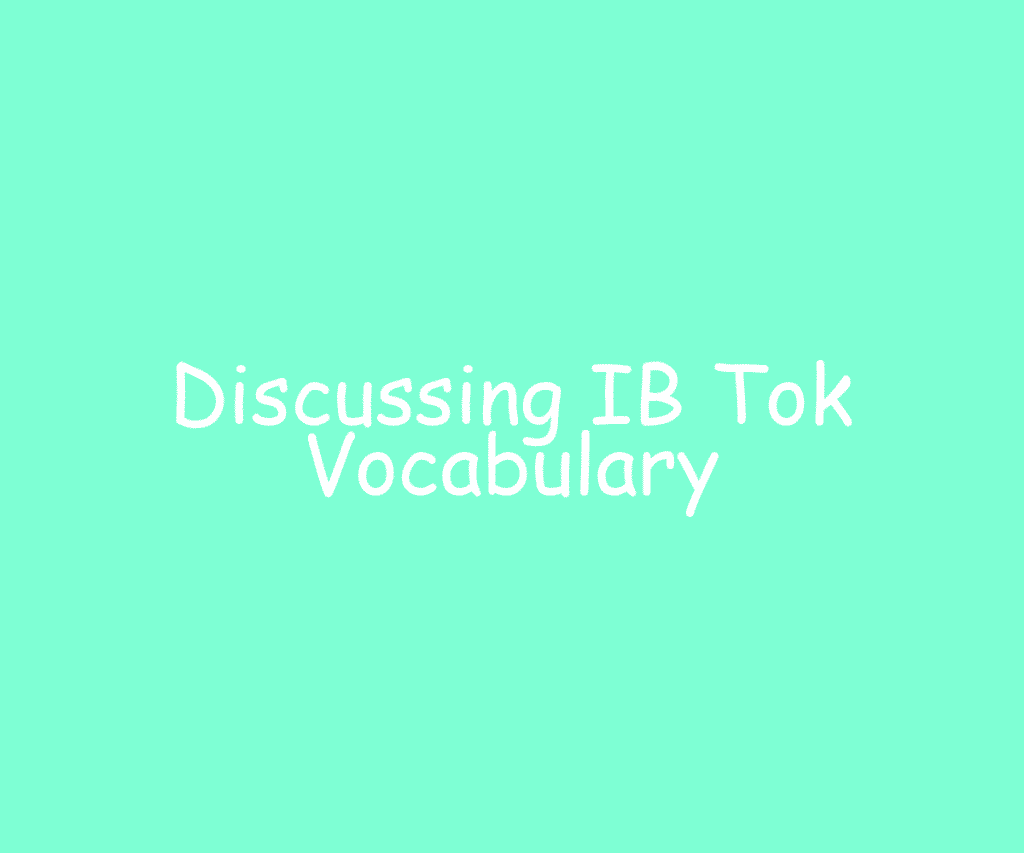
Theory of Knowledge has many terminologies and concepts that take time to understand. However, you don’t have to study and memorize all the IB TOK vocabulary words only a few of them are applicable to the assessment components.
So, in this guide, we’ve put together a list of only the most relevant TOK vocabularies that you need to be familiar with to pass your Theory of Knowledge Essay and Theory of Knowledge Exhibition.
To be clear, this guide contains only the most relevant terms you need to know about, some with links to related posts where you can learn more about the respective TOK subject.
Our goal with this list is simple. We want to keep you from trawling through hundreds of phrases and becoming overwhelmed by convoluted explanations.
TOK Vocabularies: The Only Terminologies You Need to Know
The following are the TOK vocabularies that matter the most in the Theory of Knowledge course:
Truth is one of the most contentious topics in TOK, as no one can agree on what it is, but there are different theories that can make it easier for you to have a sense of how complicated the “truth” is.
1. Truth based on statements that come together
Assume you're sitting in your bedroom and hear a kitchen 'drip, drip, drip'. Your sister, who arrives in the corridor, likewise hears the same 'drip, drip, drip' and inquires, "Did you leave the tap on?"
You proceed to check kitchen tap, which is definitely dripping due to the water not being completely turned off.
Three factors establish the veracity of this situation:
- You heard the tap leaking
- Your sister heard the tap dripping
- You saw the tap dripping.
These three assertions "coincide," and hence constitute the truth.
2. A truth that depicts reality
According to the Correspondence Theory of Truth , truth depends on your current situation. For example, if it’s raining outside and someone asks, “Is it raining?” there can only be one “true” response: yes, it’s raining outside.
3. Truth based on your belief
One of your friends may strongly feel that money is the key to happiness, whereas your dad may fervently believe that teaching is the finest career choice for her. These are all extremely true for those who believe them, and hence may "truth."
In TOK and philosophy, knowledge is a theoretical or practical comprehension of a subject. Plato defined knowledge as justified genuine belief. According to his theory, knowledge is objective and founded on true assertions about real objects.
Philosophers concur on the existence of at least four distinct categories of knowledge:
- Logical knowledge derived from the logical relationships between concepts and interactions compatible with logic's norms.
- Semantic knowledge derived from the definition of words (semantics). In other words, from the commonly recognized definitions of the terms used to define Forms.
- Mathematics and geometry are the sources of systemic knowledge gained through time, education and research.
- The five senses provide empirical information.
You can click here to read more about the Plato’s Theory of Knowledge.
Ways of Knowing
Ways of Knowing in Theory of Knowledge refers to the approaches an individual use to attempt to understand how or why something occurs. There are 8 ways of knowing, each of which you can employ independently as a means to perceive the environment. These are:
- Sense perception
- Imagination
Ways of knowing are critical components because they enable you to obtain fundamental information and understanding about the world around you, which you may then develop into knowledge.
Areas of Knowledge
Areas of Knowledge are distinct areas of thoughts concerned with how groups think. There are eight AOKs:
- Mathematics
- Natural Sciences
- Religious Knowledge
- Indigenous knowledge
All Areas of Knowledge include historical discoveries and innovations, disagreements between specialists in the subject, disagreements between professionals and the broader public, paradigm changes, and information passed down through generations.
Shared Knowledge
When you're in a group, some thoughts and views are acceptable to a majority, if not to all, members. This knowledge is disseminated among group members and is therefore considered 'shared'.
Take our planet, for example. Many people worldwide accept that "the planet is round”. Few people reach this conclusion on their own and rely heavily on the acceptance and subsequent dissemination of this knowledge by their group members.
Personal Knowledge
There’s a small difference between shared and personal knowledge, but it’s critical.
Personal knowledge is the information that an individual accepts and believes, often based on personal experiences that occurred in the absence of other individuals.
For instance, you would be the only one on the planet who understands why your favorite mug shattered, as you were the only one who witnessed it fall from the counter to the floor.
Paradigm Shift
Paradigm shift refers to a significant change that takes place in one of the Areas of Knowledge. This can relate to a significant shift in the way people do or understand things.
- A paradigm shift in the manner in which someone does something: The transition from photographic film to digital photography fundamentally altered the way people took photographs.
- A paradigm shift in how one understands something: The transition from Newtonian to Quantum Mechanics marked a sea change in how people understood physics.
A premise is a fundamental assertion upon which you build an argument and serves as the foundation for all arguments in logic. A premise needs not be true.
Empirical Knowledge
Empiricism is a term that refers to justification derived from experience, which indicates that empirical knowledge results from observation, experimentation, and direct contact with the senses.
Rationalism
This is a philosophical perspective according to which reason is the primary source and arbiter of truth and knowledge.
In this situation, truth is deductive and derived from logical conclusions established by intuition or innate knowledge based on a set of guiding axioms.
Also known as truth criteria, these are standards used to determine the accuracy of assertions and claims. There are three primary tests of truth:
- The coherence test determines if something makes sense, fits together (coheres), and is reasonable.
- Correspondence examination looks at the available evidence and reasoning.
- The pragmatic test examines a subject matter's practical utility and workability.
Need Help With IB Theory of Knowledge Assignment?
Theory of knowledge is wide and complex. These TOK terms and their meanings are just a scratch on the surface of the whole area, and you will typically need many hours of reading and researching to even get an idea of what it is about.
If you have a pending Theory or Knowledge assignment or project that is stressing you out, we can help you write it at a pocket-friendly price .
Help for Assessment is a team of premier experts in IB TOK essay writing, and we are ready to write your TOK assignment for you at the most student-friendly rates. All you have to do is order the TOK service here.
About the author
Antony W is a professional writer and coach at Help for Assessment. He spends countless hours every day researching and writing great content filled with expert advice on how to write engaging essays, research papers, and assignments.
wisescriber.com

Essential TOK Vocabulary and Key Terms Explained
Only 14% of students can define “paradigm shift,” a key TOK concept 1 . Learning TOK vocabulary is vital for the course and doing well. It includes terms like epistemology, objectivity, and relativism. Knowing these terms helps students make stronger arguments and improve their communication. It also helps them understand TOK better.
This article will show why TOK vocabulary is important. We’ll look at the main areas of knowledge and 2 8 ways of knowing 1 in the TOK syllabus. We’ll also talk about common mistakes and how to avoid them. Understanding these terms is key for critical thinking and making knowledge claims 2 .
Key Takeaways
- TOK vocabulary includes important ideas like epistemology and paradigm shifts.
- Knowing TOK vocabulary helps with making strong arguments and improving communication skills .
- The 8 ways of knowing in TOK are language, sense perception, and more.
- Understanding these ways of knowing is crucial for critical thinking and making knowledge claims .
- Shared and personal knowledge are important for understanding the world.
Introduction to TOK Vocabulary
In the International Baccalaureate (IB) Diploma Programme, the Theory of Knowledge (TOK) course is key. It makes students think deeply about knowledge and how we get it 3 . At the core, a special vocabulary helps students grasp philosophical ideas, solve ethical problems, and check if knowledge is reliable 4 .
Why TOK Vocabulary is Important
Knowing TOK vocabulary is crucial for students. These terms help build strong arguments and clear communication 4 . Without them, a TOK presentation falls apart 3 . Plus, understanding TOK vocabulary helps share complex ideas clearly, which is useful in school and later careers.
Building Blocks of Argumentation
TOK vocabulary is key for making strong arguments. Terms like “knowledge claims” and “justification” help students analyze different views 4 . Knowing these terms lets students talk about ideas clearly and stand up for their beliefs confidently.
Enhancing Communication Skills
TOK vocabulary also boosts communication skills 3 . Being able to share complex ideas with the right words is important in school and life. By improving their TOK vocabulary, students get better at sharing their thoughts clearly and efficiently.
In summary, TOK vocabulary is the heart of the Theory of Knowledge course. It gives students the tools to understand philosophy, make strong arguments, and communicate well. Learning these terms is not just for the course. It helps develop critical thinking and analytical skills for success in the IB Diploma Programme and beyond.
Key Areas of TOK Vocabulary
Learning the key TOK vocabulary is key to doing well in this course. These terms help you understand complex discussions and assessments. The main areas to focus on are the Ways of Knowing and the Areas of Knowledge .
Ways of Knowing
The “Ways of Knowing” talk about how we get and understand knowledge. They include reason, sense perception, emotion, language, memory, faith, intuition, and imagination 5 . Knowing these ways well helps you make strong arguments and look at knowledge from different angles.
Areas of Knowledge
The “Areas of Knowledge” show where we use these ways of knowing. They cover subjects like mathematics, natural sciences, human sciences, history, ethics, arts, and religion 5 . Learning the main terms in each area helps you join in TOK discussions and assessments better.
Knowing the vocabulary of ways of knowing and areas of knowledge builds a strong base for critical thinking and problem-solving. These skills are key for doing well in TOK 6 .
| Ways of Knowing | Areas of Knowledge |
|---|---|
Learning these key TOK terms helps students build a strong base for critical thinking and effective communication. These skills are vital for doing well in TOK 6 .
“The greatest enemy of knowledge is not ignorance, it is the illusion of knowledge.” – Daniel J. Boorstin
TOK Vocabulary and Key Terms
The Theory of Knowledge (TOK) course is full of special words and terms that students need to know 7 . It’s important to understand these words and their meanings for TOK discussions, essays, and presentations 7 . Knowing these terms shows you get the course and helps you share your thoughts and ideas clearly.
Important TOK words include epistemology, objectivity, relativism, empiricism, skepticism, fallacy, paradigm, and corroboration 8 . These terms help cover many topics like truth , knowledge, and how we know things 8 .
- Epistemology is the study of knowledge’s nature and origin.
- Objectivity means being fair and not biased in how you see knowledge.
- Relativism says knowledge and truth depend on personal or cultural views.
- Empiricism focuses on how our senses and evidence help us learn.
- Skepticism means questioning or doubting what we believe or know.
- A fallacy is a wrong argument that seems right.
- A paradigm is a set of beliefs and practices that shape our view of the world.
- Corroboration means proving or adding evidence to support a claim.
Learning these TOK vocabulary and key terms is key for students to talk, write, and show they understand TOK 7 . By getting to know these ideas, students can handle the complex ideas in epistemology 7 .
| Term | Definition |
|---|---|
| Epistemology | The study of the nature and origin of knowledge. |
| Objectivity | The state of being impartial and unbiased in one’s approach to knowledge. |
| Relativism | The view that knowledge and are relative to individual or cultural perspectives. |
| Empiricism | The emphasis on the role of sensory experience and empirical evidence in the acquisition of knowledge. |
| Skepticism | The questioning or doubting of claims, beliefs, or knowledge. |
| Fallacy | A logically invalid argument or reasoning that appears to be valid. |
| Paradigm | A set of assumptions, concepts, and practices that constitute a way of viewing reality. |
| Corroboration | The act of confirming or providing additional evidence to support a claim or belief. |
“Mastering TOK vocabulary and key terms is essential for students to engage in meaningful discussions, write compelling essays, and demonstrate a deep understanding of the Theory of Knowledge course.”
Essential Terms in Theory of Knowledge
In the Theory of Knowledge (TOK) course, three key terms are truth, knowledge, and ways of knowing. These ideas are central to the deep discussions and analyses students do in the course.
The topic of truth is very complex in TOK. Different theories like the correspondence, coherence, and pragmatic theories offer different views on truth. Understanding these theories is key to grasping the complex debates about truth. 8
Knowledge is often seen as justified, true belief. TOK looks at different kinds of knowledge, such as logical, semantic, systemic, and empirical. Knowing these types of knowledge helps students understand how we get and make sense of information. 8
The eight ways of knowing – reason, sense perception, emotion, language, memory, faith, intuition, and imagination – help us get and understand knowledge. Learning these ways is important for students to tackle the TOK curriculum and analyze different knowledge sources. 8
Understanding how truth, knowledge, and ways of knowing work together is key to TOK. Exploring these concepts helps students build a strong base for philosophical discussions and critical thinking in the Theory of Knowledge program. 8
| Concept | Description |
|---|---|
| Truth | The degree to which a statement matches reality, fits with other beliefs, or is useful. Theories of truth include correspondence, coherence, and pragmatic. |
| Knowledge | Justified, true belief. Knowledge comes in forms like logical, semantic, systemic, and empirical. |
| Ways of Knowing | Key methods we use to get and understand knowledge, including reason, sense perception, emotion, language, memory, faith, intuition, and imagination. |
“The process of getting knowledge is complex, mixing different ways of knowing and debates on truth and knowledge definition.” – 9
Terms Related to Ways of Knowing
The ways of knowing in TOK vocabulary are closely linked with various terms. These terms help explain and deepen our understanding of these concepts. For example, in the way of knowing “reason,” students learn about deduction, induction, fallacy, and premise 2 . The way of knowing “sense perception” includes concepts like empiricism, phenomenalism, and scientific realism 2 . Knowing these terms helps students grasp the different ways to get and check knowledge, which is key for doing well in TOK.
The eight ways of knowing in TOK vocabulary are language, sense perception, emotion, reason, imagination, faith, intuition, and memory 1 . Each way of knowing covers specific areas, like language forms, senses, feelings, thinking methods, imagination, faith, intuitions, and memories 1 . These ways of knowing mix shared knowledge and personal experiences. This mix is crucial for understanding how knowledge is formed 1 .
| Way of Knowing | Related Terms |
|---|---|
| Language | |
| Sense Perception | |
| Emotion | |
| Reason | |
| Imagination | |
| Faith | |
| Intuition | |
| Memory |
This table shows the different ways of knowing in TOK vocabulary and their related terms 6 . By understanding these terms, students can get a deeper and more complete view of how we get and evaluate knowledge 6 .
Terms Related to Areas of Knowledge
The Theory of Knowledge (TOK) course explores different “Areas of Knowledge.” Each area has its own special words. It’s important to know these terms to talk and think deeply about mathematics , natural sciences , and human sciences .
Mathematics
In mathematics , key terms are analytic , a priori , a posteriori , axioms , and theorems 1 . These words help explain how math works. It’s based on logic and using basic rules to find new truths.
Natural Sciences
The natural sciences focus on empiricism , falsification , hypothesis , and paradigm 1 . These ideas show how we learn from the world through experiments and testing theories. This helps us understand the natural world better.
Human Sciences
In human sciences , important terms are behaviorism , bias , holism , and reductionism 1 . These concepts look at how people and society interact. They also talk about the challenges of being fair and finding the best way to study human behavior and social issues.
Knowing the special words for each area helps students talk and think better about their topics 1 .
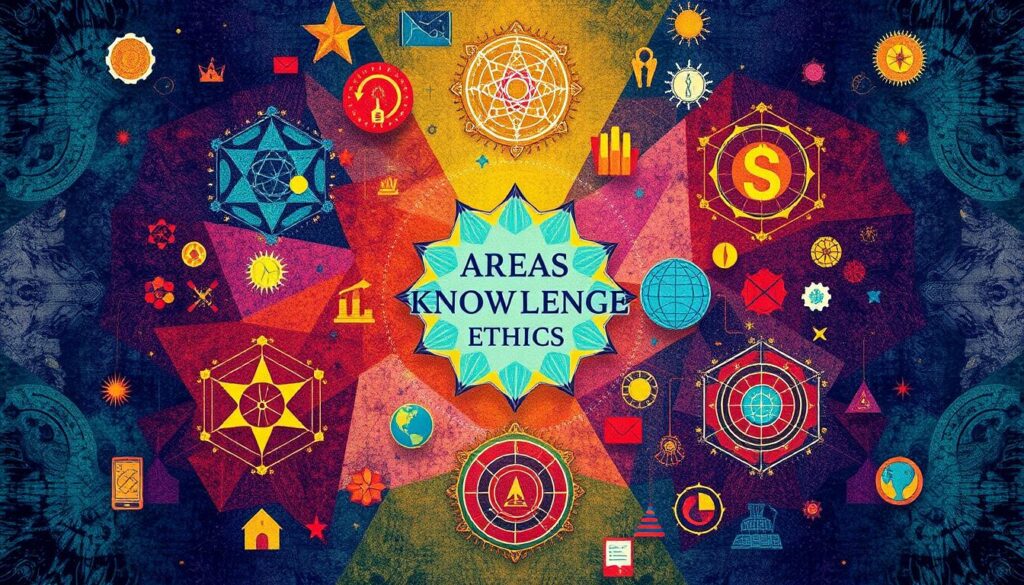
| Area of Knowledge | Key Terms |
|---|---|
| analytic, a priori, a posteriori, axioms, theorems | |
| empiricism, falsification, hypothesis, paradigm | |
| behaviorism, bias, holism, reductionism |
“Learning the special words for each area helps students talk and think better about their topics.”
By getting to know the special words for areas of knowledge , students can feel more confident in the TOK course. This helps them understand and share their thoughts on what we know and don’t know 1 .
Shared vs Personal Knowledge
In the Theory of Knowledge (TOK) course, we learn about shared knowledge and personal knowledge . Shared knowledge is what most people agree on, like knowing the Earth is round 10 . Personal knowledge is what each person knows from their own life, skills, and views, which might not be the same for others 11 .
Knowing the difference between these kinds of knowledge helps students in the TOK course. Shared knowledge is organized and comes from many people working together over time in fields like physics or computer science 11 . Personal knowledge , however, is harder to share because it’s based on personal experiences and ways of seeing things 11 .
The way shared knowledge and personal knowledge interact is key in the TOK course. Students learn how these two kinds of knowledge affect each other 11 . This understanding is important for developing critical thinking and discussing what knowledge is and why 10 .
| Shared Knowledge | Personal Knowledge |
|---|---|
| Structured, systematic, and the product of collective efforts | Shaped by individual experiences, skills, and perspectives |
| Evolves over time through shared methodology | Often more challenging to communicate due to its subjective nature |
| Commonly agreed upon by society | May not be shared by others |
The difference between shared knowledge and personal knowledge is vital in the TOK course. It helps students see how complex knowledge is and why we believe it. By grasping these ideas, students can think more deeply about how we get, share, and understand knowledge in different situations 10 11 .
Paradigm Shifts and Premises
In the Theory of Knowledge (TOK) curriculum, “paradigm shift” and “premise” are key terms . A paradigm shift means a big change in how we see or tackle a subject in an Area of Knowledge 12 . This change can be a big leap, like moving from Newton’s physics to quantum mechanics.
A premise , on the other hand, is a basic statement that supports an argument. These statements are the base for logical thinking and don’t always have to be true 12 . Understanding these ideas is vital for students to see how knowledge changes and build strong arguments in TOK.
Paradigm Shift
A paradigm shift is a big change in the core ideas and methods of a scientific field 12 . It’s about changing the basic beliefs, methods, and goals of a study area. These shifts can question what we believe and open up new ways to see the world.
A premise is a statement that starts an argument or theory 12 . It’s an assumption taken as true or likely for discussion or reasoning. Premises are key in building logical and convincing arguments in TOK.
Knowing about paradigm shifts and premises is key for students in TOK. It helps them tackle the complex TOK topics and analyze knowledge claims across different Areas of Knowledge 13 .

“The significant problems we have cannot be solved at the same level of thinking with which we created them.” – Albert Einstein
This quote from Albert Einstein shows what a paradigm shift is all about. It’s about needing new thinking and understanding to solve complex issues that old ways can’t handle 12 .
Empirical Knowledge and Rationalism
The Theory of Knowledge (TOK) course explores the difference between empirical knowledge and rationalism . Empirical knowledge comes from what we see, touch, and test. Rationalism says reason and logic are key to understanding the world 14 . It’s important for students to grasp these ideas to see how knowledge is justified and evaluated.
René Descartes and Gottfried Wilhelm Leibniz were big thinkers who believed in innate ideas 14 . They thought we’re born with certain knowledge that’s always true. On the other side, John Locke thought our knowledge comes from what we experience 14 .
Leibniz showed that even without school, people can use logic and math. He believed these ideas are in us but we might not notice them 14 . Locke disagreed, saying we need to experience or think about ideas to know they’re there 14 . Leibniz also said innate ideas are always true, while other ideas might not be 14 .
Empiricism , as Locke suggested, means we learn from our experiences 14 . This is different from Descartes and Leibniz, who thought we’re born with certain knowledge 14 15 .
Noam Chomsky’s work in the 1950s showed how people learn language, supporting rationalism 15 . Rationalists believe some knowledge comes from inside us, not just from what we see or touch 15 . Immanuel Kant also thought reason was key in deciding what’s right or wrong 15 . Religious rationalism says we can learn everything through reason, not magic or revelation 15 .
| Empirical Knowledge | Rationalism |
|---|---|
| Derived from sensory experience, observation, and experimentation | Emphasizes the role of reason and deductive logic as the primary source of knowledge |
| Advocates for a posteriori knowledge acquired through experience | Supports the existence of innate ideas and a priori knowledge |
| Locke’s perspective on knowledge acquisition | Descartes’ and Leibniz’s rationalist views |
“Rationalism asserts that some human knowledge is gained through a priori insight rather than solely from sense experience.”
Truth Tests and Criteria
The Theory of Knowledge (TOK) course explores different “truth tests” or “truth criteria” to check if knowledge claims are true. These include the coherence test, the correspondence test, and the pragmatic test. 16
The coherence test looks at if a statement makes sense logically. It checks if it fits with other beliefs and doesn’t go against known facts 16 . The correspondence test looks at the evidence and reasoning to see if a claim really shows what’s true 16 . The pragmatic test sees if a knowledge claim works in real life, looking at its practical use and effects 16 .
Knowing about these truth tests is key for students in TOK. They help students check if knowledge claims are valid and reliable 16 . By exploring these tests, students learn to think deeply about knowledge claims, looking at their reasons and effects 16 .
The new Theory of Knowledge Guide offers 385 suggested (non-prescriptive) Knowledge Questions for students to explore 17 . These questions are big and can be applied in many areas of study 17 .
There are also specific questions that are important for deep analysis but aren’t strictly Knowledge Questions in TOK 17 . Using real-life examples is key to answering these questions well 17 .
The TOK Knowledge Questions are big and based in the real world, avoiding wild guesses about the universe 17 . Some big questions include thinking about existence, time, purpose, and the divine 17 .
| Truth Test | Description |
|---|---|
| Coherence Test | Examines the logical consistency of a statement, ensuring it aligns with other accepted beliefs and doesn’t contradict known facts. |
| Correspondence Test | Evaluates the available evidence and reasoning to assess whether a claim accurately reflects reality. |
| Pragmatic Test | Assesses the practical utility and workability of a knowledge claim, considering its real-world applications and consequences. |
Learning the key TOK vocabulary is vital for students to grasp the Theory of Knowledge course. It helps them do well in their tests 18 . Knowing about topics like epistemology, objectivity, ways of knowing , and areas of knowledge is crucial. It lets them join deep discussions, build strong arguments, and show they understand the complex nature of knowledge 19 .
This article has looked closely at the most important TOK vocabulary . It gives students the right words to talk about the philosophical and analytical parts of the Theory of Knowledge course.
Getting good at TOK vocabulary and key terms boosts students’ critical thinking skills. It helps them go deeper into knowledge analysis and make smart conclusions 19 . With these skills, students can share their ideas, talk with others, and show they get the complex parts of seeking knowledge.
As students start their Theory of Knowledge path, knowing TOK vocabulary and key terms is a strong start 18 . It helps them handle the course’s tough parts with ease. This knowledge is key to doing well in their IB exams and later on.
What is TOK vocabulary and why is it important?
What are the key areas of tok vocabulary, what are some of the most essential tok vocabulary terms, how are the ways of knowing related to other tok vocabulary terms, what specialized vocabulary is associated with the different areas of knowledge, what is the difference between shared knowledge and personal knowledge, what is the significance of the terms “paradigm shift” and “premise” in tok, what is the difference between empirical knowledge and rationalism, what are the “truth tests” or “truth criteria” used in tok, source links.
- The Ultimate List of TOK Terminology – https://everythingabouttheib.blogspot.com/2020/04/the-ultimate-list-of-tok-terminology.html
- Ways of Knowing TOK (A Simple Guide) – https://ibbetter.com/ways-of-knowing/
- Theory of knowledge guide – https://toktopics.com/wp-content/uploads/2015/02/tok-guide-new.pdf
- Introduction to TOK – https://sophieintok.wordpress.com/2017/09/25/introduction-to-tok/
- TOK Vocabulary | Learn All TOK Definitions for IB Success – https://buytokessay.com/blog/understanding-tok-vocabularies/
- PDF – https://mrsmithsibwebsite.weebly.com/uploads/1/2/3/9/12396431/theory_of_knowledge_vocabulary.pdf
- PDF – http://www.rjenks.com/TOK-VOCAB.pdf
- IB Theory of Knowledge (TOK) Vocabulary: The Complete Guide – https://www.helpforassessment.com/blog/ib-theory-of-knowledge-tok-vocabulary/
- Glossary of TOK | Theory of Knowledge – https://guide.fariaedu.com/tok/glossary-of-tok
- Essential Concepts – https://sophieintok.wordpress.com/essential-concepts/
- TOK BASICS – http://hillsboroibdp.weebly.com/tok-basics.html
- CT: The Exhibition: A Glossary of Prompts – https://mytok.blog/2020/02/20/ct-the-exhibition-a-glossary-of-prompts/
- TOK Guide _e_FINAL.indd – http://www.northstarcharter.org/wp-content/uploads/2014/08/TOK-guide-2015.pdf
- Sources of Knowledge: Rationalism, Empiricism, and the Kantian Synthesis – https://press.rebus.community/intro-to-phil-epistemology/chapter/sources-of-knowledge-rationalism-empiricism-and-the-kantian-synthesis/
- Rationalism | Definition, Types, History, Examples, & Descartes – https://www.britannica.com/topic/rationalism
- Knowledge Questions – http://www.tok2022.net/knowledge-questions.html
- Knowledge Questions — TOK RESOURCE.ORG – 2024 – https://www.tokresource.org/knowledge-questions
- TOK exhibition commentary – https://theoryofknowledge.net/free-tok-notes/tok-exhibition/tok-exhibition-commentary/
- Writing a TOK Essay: Its Purpose and Key Instructions – https://u4success.com/writing-a-tok-essay-its-purpose-and-key-instructions/?no_cache=1691683376
Leave a Reply Cancel reply
Your email address will not be published. Required fields are marked *
Save my name, email, and website in this browser for the next time I comment.
Search This Blog
A guide to the ib.
Here is a blog where I talk about anything and everything possible about the IB, both within Finland and around the world!
The Ultimate List of TOK Terminology
Way of knowing (wok).
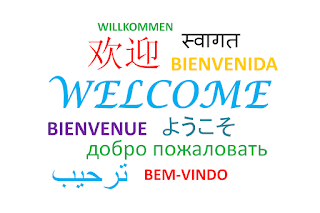
- formal language
- informal language
- written language
- spoken language
- different national languages
- physically touching
- Primary emotions (the feelings we experience immediately when something happens)
- Example: Fear , happiness , sadness , and anger
- Secondary/social emotions (this is what you feel ABOUT a primary emotion)
- Example: You may feel ashamed that you feared something happening

- background assumptions (assumptions you make about context of something occurring)
- personal knowledge
- shared knowledge
- Concepts/ideas that are entirely made up by someone
- Concepts/ideas that are made up of fragmentations of memories and pieces of knowledge
- Religious beliefs
- A person's moral principles
- Indigenous beliefs

- previous personal experiences (personal knowledge)
- Examples: personally having fallen out of a tree, having scored full points on a test
- previous experiences from other people communicated to you (shared knowledge)
- Examples: a friend telling you that they were ghosted by someone, a video being shown of your brother slipping on a rock
Areas of Knowledge (AOK)
- historical discoveries and inventions
- controversies between experts in the field
- controversies between experts and the general populace
- paradigm shifts
- information passed down through generations
Miscellaneous Key Terms

- Paradigm shift in how something is done : The big change from photographic film to digital photography changed the way people took photos.
- Paradigm shift in how something is understood: The development from Newtonian Mechanics to Quantum Mechanics was a big change in how people understood physics.

- A truth that accurately describes reality ( Correspondence Theory of Truth )
- Truth can be dependent on the situation you are placed in. A statement accurately reflects your reality. For example, if it is snowing outside and someone asks "Is it snowing outside?", there is only 1 "true" answer: Yes, it is snowing outside.
- A truth that's based on different statements that "line up" ( Coherence Theory of Truth )
- Let's say you're sitting in your bedroom and hear a 'drip, drip, drip' from the kitchen. Your sister also appears to hear the same 'drip, drip, drip' and asks you from the hallway "Did you leave the tap on?" You then go to check on the tap in the kitchen, and indeed it is dripping because the tap was not completely turned off. The truth of this situation is based on 3 things: you heard the tap dripping, your sister heard the tap dripping, and you saw the tap dripping. These 3 statements "line up", and thus you can consider this the truth.
- A truth based on one's beliefs ( The Pragmatic Theory of Truth )
- A friend you know might adamantly believe that money is the key to happiness, or your aunt might truly believe that being a teacher is the best career path for her. These are all very true for the people believing these statements, and thus can also be considered the "truth".
- If a tree were to fall in a forest, yet no one ever saw it fall or heard it fall, how do we know it fell? If there is no proof for it happening, did it ever actually happen?
- Let's consider the tap dripping example as a deaf and blind person (a little Helen Keller moment). You were in your room and didn't hear nor see the tap dripping. You therefore can't line up the statements of "I heard the tap" and "I saw the tap". If you can't line up any statement, does this mean the tap never dripped in the first place? Obviously not, however your view of reality can't validate this happening. That's an example of a major flaw in the Coherence Theory of Truth, for instance.
Post a Comment
Popular posts from this blog, how to get 7 in your ess ia: step-by-step.

How to Ace Your Psych IA: Step-By-Step

History IA (Historical Investigation) Example - Grade 7

TOK terminology

Take particular note of the following terms as they appear in the EA essay and IA presentation assessment instruments. Some of these terms are specific to the new curriculum and others are part of the older curriculum that will wrap up in November 2021.
KNOWLEDGE QUESTIONS (KQs)
Knowledge Questions are the heart of TOK. A TOK Knowledge Question is a question that is focused on knowledge, has more than one possible answer, and is general (International Baccalaureate Organization 20, 21). In a sense a Knowledge Question is a TOK-style research question. The TOK EA essay and IA presentation are simply in-depth investigations of Knowledge Questions.
A TOK Knowledge Question can be answered in a number of different ways and in fact, different students can answer the same Knowledge Question in completely opposite ways. A successful TOK essay must include claims and counterclaims. Therefore, a TOK essay should look opposing answers to the same Knowledge Question.
Knowledge Questions need to be distinguished from subject-specific questions (e.g. questions that would be discussed in history or science classes).
Consider the topic of the Meiji reformation in Japan:
Subject-specific question (History):
“What are the key reasons that led to Japan’s Meiji reformation?”
This is a history question that would be discussed in a history class and it is a topic researched by historians.
Knowledge Question on the same topic (History):
“How does nationality affect what a student learns about the Meiji reformation?”
Additional pairs of subject-specific questions and Knowledge Questions.
Subject-specific question (Art):
“What are the characteristics of dystopian literature?
Knowledge Question on the same topic (Art):
“How does the translation of literature affect what can be learned from it?”
Subject-specific question (The Natural Sciences – chemistry):
“What is the formula for the compound formed by calcium and nitrogen?”
Knowledge Question on the same topic (The Natural Sciences – gender): “To what extent does gender affect what is learned in a science class?”
KNOWLEDGE CLAIMS (KCs)
A Knowledge Claim is the answer to a Knowledge Question. A Knowledge Claim is a TOK topic sentence. Most body paragraphs in a TOK essay will focus on arguing a Knowledge Claim.
COUNTERCLAIMS (CCs)
(FYI this term is part of the older curriculum that will wrap up in November 2021).
This is a counterargument that argues the opposing side of a Knowledge Claim. A good TOK essay will need to argue both sides of an arguments and thus will need Knowledge Claims and corresponding (and opposing) Counterclaims.
(FYI this term is part of the new curriculum).
The new TOK curriculum has one core theme (Knowledge and the knower) as well as a set of five optional themes. Each TOK class will study the core theme and two of the optional themes.
AREAS OF KNOWLEDGE (AOKs)
An AOK is particular area of study along the lines of a school subject or university subject. Each AOK can be narrowed down into more specific disciplines (e.g. the Natural Sciences includes geology, chemistry, physics, etc.).
These are the AOKs in the older TOK curriculum:
- mathematics
- the natural sciences
- the human sciences
- religious knowledge systems
- indigenous knowledge systems
The newer TOK curriculum has five AOKs:
WAYS OF KNOWING (WOKs)
The WOKs are the means in which knowledge in the AOKs is acquired. According to the TOK guide the WOKs “underlie the methodology of the areas of knowledge” and “provide a basis for personal knowledge.” (International Baccalaureate Organization8). The WOKs are:
- sense perception
- imagination
KNOWLEDGE FRAMEWORK
The Knowledge Framework is a way to break down AOKs in order to help understand how knowledge is produced, tested, shared etc. It helps students understand the characteristics of each AOK. While Knowledge Frameworks are almost never explicitly discussed in TOK assessments, the more successful essays and presentations will implicitly address aspects of an AOK’s Knowledge Framework.
The TOK course lists five key Knowledge Framework characteristics for each AOK:
- Scope / applications
- Concepts / language
- Methodology
- Historical development
- Links to personal knowledge.
To give one example of the importance of Knowledge Frameworks, consider a difference between the Natural Sciences and History. In both the Natural Sciences and history research is conducted and eventually conclusions are drawn. In the Natural Sciences it is relatively easy to check if conclusions are justified. Experiments can be done again by different researchers under the same conditions. If the same results are found then the original conclusions may be justified. In the study of history, however, conclusions are not drawn from experiments that another researcher can replicate. Instead, conclusions are drawn from historical documents and other sources that can be interpreted in different ways by different historians. The conclusions a historian draws are more open-ended and may be influenced by bias and other factors in different ways than in the Natural Sciences.
SHARED KNOWLEDGE / PERSONAL KNOWLEDGE
Like Knowledge Frameworks, Shared Knowledge and Personal Knowledge are not often explicitly discussed in either the essay and presentation. They do, however, underpin much of the discussion in TOK.
Shared Knowledge:
- Is created by multiple individuals
- Is structured according to convention (the conventions will differ from AOK to AOK)
- Will change as later contributors add to what has already. Later contributors may also find that earlier research and conclusions are invalid.
Some examples of Shared Knowledge (i.e. mathematics) are available to almost everyone but other kinds of Shared Knowledge may be shared within a limited group (i.e. a particular culture, a particular group of experts).
(International Baccalaureate Organization 18)
Personal Knowledge:
- Varies greatly from person to person. Even experts with knowledge in the same area (i.e. playing the guitar) may have learned it in completely different ways.
- Is linked to the culture, society, and language where it was learned.
Personal Knowledge does include the Shared Knowledge that an individual has acquired (e.g. someone that has taken a history class will have acquired personal knowledge.
SPECIFIC EXAMPLE / REAL LIFE EXAMPLE (RLE)
( FYI The phrase “specific example” replaces the phrase “real-life example” in the new TOK curriculum.)
TOK discussions (in classes, essays, and presentations) should not be based on theoretical examples but on real-world examples. These are RLEs. Look at the following examples and non-examples of RLEs
An RLE: A discussion of how a particular government uses some principles of utilitarianism when deciding on a health car budget is effective use of an RLE.
Not an RLE: A discussion of the theory of utilitarianism.
Not an RLE: An in-depth discussion of the Japanese aesthetic principle of wabi-sabi
An RLE: A discussion of how the the Japanese aesthetic principle of wabi-sabi is used in the Zen garden Ryoanji.
Real Life Situation (RLS) : The same as a Real Life Example (for some reason the IA presentation uses the phrase “Real Life Situation” instead of “Real Life Example.”
(FYI this term only applies to the new curriculum).
There are 35 IA prompts that are listed on pages 40 and 41 of the TOK subject guide. TOK students must choose one prompt and three objects that they will based their IA exhibition on. The guide calls the prompts “high-level knowledge questions” (40).
This is the IA presentation document that must be filled in and submitted to the IB. The moderation of the IA mark is based on the TKPPD. This document is extremely important as IB markers will not watch or listen to your presentation. Your IA mark will be determined entirely on this document.
This is the EA essay document that must be filled in and submitted to the IB. The purpose of the document helps ensure students have sufficient feedback from their TOK teacher. It is also designed to reduce the chances of academic misconduct.
DIFFERENT PERSPECTIVES / DIFFERENT POINTS OF VIEW
( FYI The phrase “different points of view” replaces the phrase “different perspectives” in the new TOK curriculum.)
In TOK discussions and assessments students need to explain how and why different people view and approach situations in different ways.
IMPLICATIONS
Implications are the conclusions that can be drawn from a set of arguments. (Implications are mentioned specifically in the top band of the EA essay assessment instrument).
Works cited
International Baccalaureate Organization. “Theory of Knowledge Guide.” 2017.
Privacy Overview

The Ways of Knowing in TOK (A Simple Guide)

Glossary of TOK
Terms, acronyms and their definitions
TOK is a course full of terms and acronyms, and it’s easy to lose track of what they all mean. Here is a list of the key things you need to know.
AOK (A rea of knowledge)
The six AOKs represent our different categories of knowledge in TOK. These are the arts, history, the human sciences, mathematics, and the natural sciences.
- Assessment instrument
The assessment instrument is the rubric used for your TOK essay and exhibition. Make sure you have read and understood this before you begin writing them!
- Connections
It’s important that the arguments you present in TOK are fully interconnected. This means linking (by comparing and contrasting) different AOKs and themes, and ensuring that the real-life situations you use to explore knowledge question discussion are fully relevant.
The core theme of TOK is called 'Knowledge and the knower', and considers ways in which personal knowers produce, use, and make sense of knowledge about the world. Like the optional themes, it provides content that can be drawn on within the exhibition.
The TOK exhibition is one of the two assessment tasks. It is done at the end of Year 1, completed individually, and involves students choosing an IA prompt, and selecting three objects to explain how TOK “manifests itself in the world around us”.
Students choose one IA prompt from a list of 35, on which they base their TOK exhibition.
- Implications
Drawing implications is very important in TOK. This means being able to explain the significance of your arguments, illustrating and assessing this via examples.
- Interactions
During the TOK essay writing process, you will meet with your teacher for 3 ‘interactions’. For more details on each one, see the FAQs section.
- International mindedness
TOK is one of the key ways in which the IB Diploma Programme achieves its mission to encourage international mindedness, via a consideration of different cultural perspectives, and how knowledge is produced in often radically different societies.
- Knowledge framework
The knowledge framework is a tool provided by the IB to help you unpack and explore the different AOKs. This framework asks you consider the scope of the AOK, methods and tools within it that are used to produce knowledge, how it can be viewed via different perspectives, and how it links to ethics.
KQ (K nowledge question)
Knowledge questions are exactly that - questions about knowledge - and exploring them are a key part of the TOK course, and one of the ways in which you are assessed in the essay.
- Optional themes
There are 5 different optional themes (knowledge and indigenous societies, knowledge and language, knowledge and politics, knowledge and religion, and knowledge and technology), and students should explore at least two of these in detail and depth. It is recommended that the TOK exhibition is based on one of the optional themes (or the core theme).
- Personal experiences and beliefs
The new ‘core’ theme (Knowledge and the knower) encourages us to reflect on our own personal biases, experiences, opinions, and beliefs, and think about the origins of all these.
- Perspectives
One of the key aspects of TOK is considering different perspectives, and how they affect the ways we acquire and use knowledge. Perspectives might include our gender, cultural background, an academic tradition, or the point in time when we are looking at the world.
- Points matrix
Your grade for TOK (A-E) combines with the one you receive for the extended essay (EE) to give a mark out of 3. So, an ‘A’ and a ‘B’ give you 3 points; a ‘B’ and a ‘C’ give you 1 point, etc. The FAQs section has a table to illustrate the points matrix.
PPF ( Planning and progress form)
This is filled in by you as you produce your TOK essay, giving details of the three interactions you have with your teacher. Your teacher will also write their comments about your essay on the PPF.
PT ( Prescribed title)
You write your TOK essay on one of the six PTs released by the IB about 6 months before the completion date.
RLS ( Real-life situation)
RLSs are issues, events, and experiences that you might have had, or read about, that serve as examples to support your discussion of knowledge questions, and also as the source from which you extract your knowledge questions.
The theory of knowledge course.
- Twelve TOK concepts
Although TOK is a concept-rich course, with hundreds of ideas and concepts, the IB has picked out twelve which are of special importance: evidence, certainty, truth, interpretation, power, justification, explanation, objectivity, perspective, culture, values, responsibility.
Although TOK doesn’t look at a separate area of knowledge for morals or ethics, the concept of ‘values’ runs strongly through the course, and students should be able to discuss the relationship between the knowledge we possess, and the values we embrace.
Last updated 3 years ago
- AOK (Area of knowledge)
- KQ (Knowledge question)
- PPF (Planning and progress form)
- PT (Prescribed title)
- RLS (Real-life situation)


ToK Vocabulary: The Complete List of Terms Explained
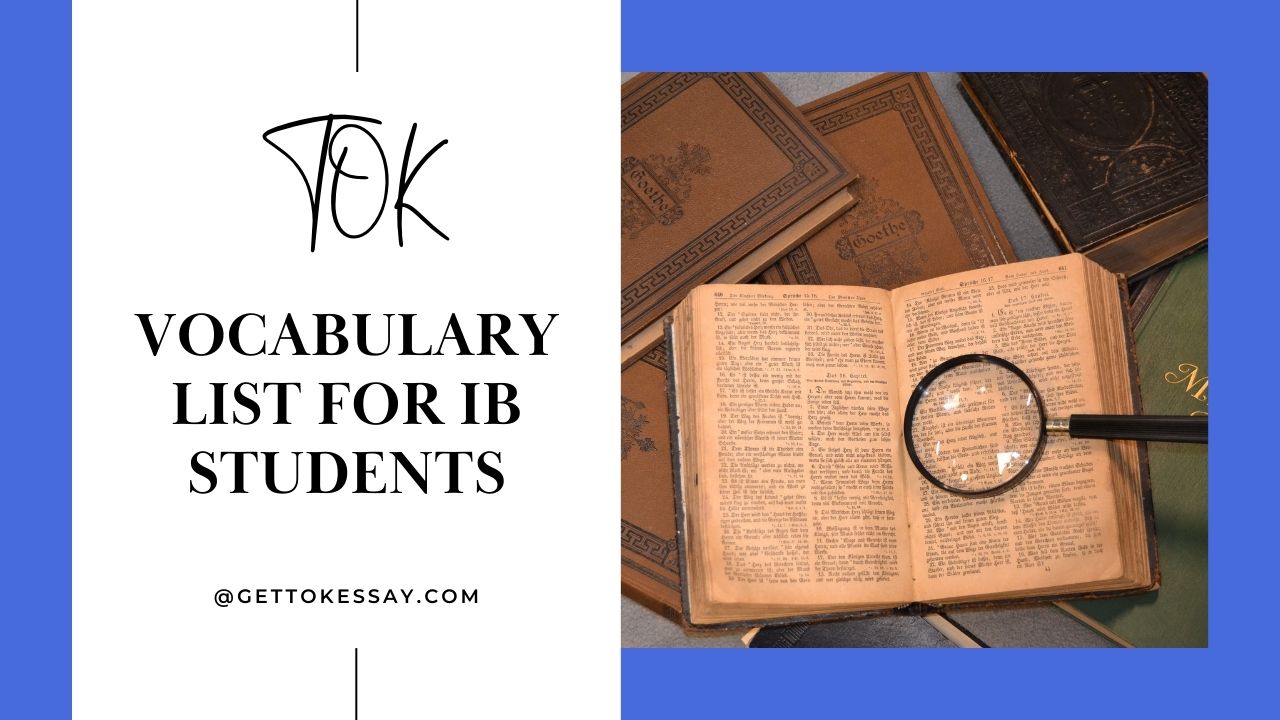
The ToK course is challenging, interesting, and equally rewarding if you get it right. In the course are dozens of terms and concepts that take time to grasp. However, only a few terms in the ToK vocabulary are important to the course.
In this post, we list and explain only the most important and frequently used terms. You’ll find these concepts incredibly helpful for the Theory of Knowledge essay and the ToK exhibition .
Our goal with this article is simple:
We want you to stop wasting your precious time on trawling through phrases you’ll never in the ToK course and instead read, understand, and memorize only what’s important.
Key Takeaways
The most important terms and phrases used in the ToK course are:
- Ways of knowing
- Areas of knowledge
- Shared knowledge
- Personal knowledge
- Paradigm shift
- Empirical knowledge
- Rationalism
ToK Vocabulary List Explained
The following is a brief explanation of the most important TOK terms:
Truth is complicated because no one can agree on what truth is. However, there are theories that enable people to have a sense of how complex truth can be.
- Truth Based on a Personal Belief: Some people believe that education is the path to a successful career. Some strongly feel that money can solve all the problems in the world. These statements are true to those who believe them, hence “truth”.
- Truth Based on Statements: If two or more assertions coincide (or come together), it constitutes to truth.
- Truth that Depict Reality: The Correspondence Theory of Truth states that truth depends on an individual’s current situation. For example, if a car is hooting outside and someone asks, “Is a car hooting?” there can only be one true answer.
2. Knowledge
In the realms of TOK and philosophy, knowledge signifies a grasp of a subject, either theoretically or practically.
Plato conceptualized knowledge as a justified and true belief, proposing that it rests on accurate assertions about tangible entities.
There are four unique categories of knowledge in philosophical discussions:
- Semantic Knowledge: The knowledge comes from the definitions of words (semantics). Essentially, it stems from commonly accepted meanings of terms that describe forms.
- Logical Knowledge : It refers to knowledge drawn from the connections between concepts and interactions that adhere to the principles of logic.
- Systemic Knowledge : It refers to knowledge acquired over time through education and research, and it has deep roots in disciplines such as Mathematics and Geometry.
- Empirical Knowledge: Empirical Knowledge is information acquired through the five senses.
3. Ways of Knowing
In the TOK course, ways of knowing refer to the means by which we know what we claim to know. You can also think of it as the methods that people use to understand the reasons or mechanisms behind events.
The means are language, sense perception, emotion, reason, imagination, faith, intuition, and memory.
Ways of knowing are important because provide essential information and insight into the world, which can subsequently be developed into knowledge.
4. Areas of Knowledge
Areas of Knowledge in TOK refer to the unique structures within which we understand the world.
IB students must study and understand five AOKs, which are Mathematics, Humanities, History, Arts, and Natural Sciences.
Note that all AOKs feature disagreements between professionals and the public, information passed down to generations, disagreements between subject experts, paradigm changes, and historical discoveries and innovations.
5. Shared Knowledge
Within a group, certain thoughts and perspectives gain approval from the majority, if not all, of its members. This kind of knowledge is common in the group, distributed collectively.
Take our planet, for example. Many individuals embrace the widespread agreement that “the earth is round”.
Few people arrive at this conclusion individually. Many depend on the acknowledgment of this understanding within their group.
6. Personal Knowledge
Personal knowledge is information an individual believes, often rooted in personal experiences witnessed when alone.
For example, if your cherished mug breaks and you’re the sole observer of it slipping from the counter, you alone hold the understanding behind that event.
7. Paradigm Shift
A paradigm shift is a change in one of the areas of knowledge. More often, a paradigm shift relates to a shift in the people understand things or in the way they understand things.
For example:
- The evolution of photography, and particularly the shift from photographic film to digital photography, changed the way people take photos.
- The change from Newtonian to Quantum Mechanics completely transformed how we understand modern physics.
A premise is a statement on which you build an argument, as it serves as the foundational for all logical arguments.
Note that a premise cannot be true.
9. Empirical Knowledge
Empiricism signifies justification drawn from experience. This means that empirical knowledge arises from observing, experimenting, and directly engaging the senses.
10. Rationalism
Rationalism is a philosophical stance where reason holds the central role in determining truth and knowledge.
Here, we reach to the “truth” through deduction drawn from logical conclusions based on intuition or inherent knowledge rooted in a core set of guiding principles.
11. Truth Test
Truth tests criteria used to assess the validity of statements and assertions. The three main tests of truth are:
- Coherence test: The coherence test checks if something is sensible, consistent, and logical.
- Correspondence test: It evaluates evidence and reasoning for alignment with reality.
- Pragmatic test: This pragmatic test assesses the practical usefulness and effectiveness of a subject.
Get Professional Writing Help
TOK is a complex course that demands hours of reading and attention to details. So if you’re already feeling the intensity of the course in the first or second year, we’re here to help.
Take advantage of our TOK essay writing service and get professional help from expert writers. Whether you don’t have a strong background in TOK or you just need help to get the essay done on time, you can benefit from our writing help.
Our team focuses on in-depth research, custom writing, reliable customer support, and timely delivery.
Leave a Comment Cancel reply
Save my name, email, and website in this browser for the next time I comment.
[email protected]
Our Writers
How It Works
Privacy Policy
ToK Exhibition
2024 Get ToK Essay. All Rights Reserved.
- [email protected]
- Get 21% OFF . Use the code: FIRST21

IB TOK Essay Structure in Detail
Theory of Knowledge is an interdisciplinary field of study that focuses on understanding the different ways of knowing and how our knowledge is acquired, developed and used. It involves exploring the connections between different disciplines, such as the sciences, humanities, mathematics, and the arts, and recognizing the complexities of real-world problems and issues. Through TOK, students are able to gain a deeper understanding of the world around them, as well as develop their critical thinking skills.
TOK helps people understand the links between different disciplines, allowing them to see a broader perspective on the world. By equipping students with the tools to think critically, TOK prepares them for meaningful dialogue about complex issues. Additionally, it serves as a valuable way for students to assess and evaluate their own knowledge and beliefs, as well as question and challenge the knowledge of others. In essence, TOK encourages exploration of the different ways of knowing and understanding the world.
For teachers, understanding the importance of TOK can help to create more effective learning environments. By introducing and discussing different theories and perspectives, teachers can provoke deeper exploration and thought, which can help to ground students’ understanding and open up new sources of knowledge. Moreover, introducing TOK in the classroom can develop students’ ability to think critically, allowing them to form logical arguments and see the connection between different areas of knowledge.
To sum up, Theory of Knowledge is an interdisciplinary field of study that encourages exploration of the different ways of knowing and understanding the world. It provides students with the skills to think critically and examine the complexities of real-world issues. Additionally, it is a useful tool for teachers to help develop students’ abilities to think critically and explore different perspectives. Now, let’s take a closer look at the TOK essay structure.

Outline of the TOK Essay Structure
The International Baccalaureate Theory of Knowledge essay is a 750 to 1600 word requirement on the student’s knowledge of the world, and how they analyze and evaluate it. The TOK essay structure is designed to help students express their ideas in an organized, concise and effective way.
The TOK essay has a distinct structure that should be followed throughout the paper. The basic structure includes an introduction, body paragraphs, and a conclusion. Each of these parts should be a separate section within the outline and should include specific points.
The introduction should clearly define the topic and provide an overview of the essay’s purpose. It should also introduce the three Are of Knowledge (AOKs) that are relevant to this essay and describe how they will be connected in the essay.
Following the introduction, each body paragraph should contain an argument, evidence to support it and then a conclusion that ties back to the main argument. Body paragraphs should cover each AOK mentioned in the introduction, with the arguments relating to each AOK. In addition, body paragraphs should state how each AOK is related to each other.
Finally, the conclusion should summarize all of the arguments made in the body of the essay and suggest ways to further explore the topics presented. This should be done with a focus on how these areas of knowledge intersect to create a more holistic understanding of the world.
By following this structure, students can ensure that their TOK essay is well organized and effectively communicates their ideas. Additionally, it will help students stay on track with the essay’s requirements and ensure that their essay meets the grading criteria.
Overview of the Grading Criteria for TOK Essays
The Theory of Knowledge (TOK) essay is one of the most important components in the International Baccalaureate (IB) Diploma Programme, and it carries a significant chunk of the overall score. Writing a compelling TOK essay requires much more than simply understanding the topics and reading about them. If you’re hoping to get an excellent grade, it’s crucial to understand how your work will be assessed.
Knowledge Questions and their Relevance
The key part of any TOK essay is the knowledge questions – these need to be answered directly with a clear focus and relevance to the question. A well-structured essay will address the question from various points of view and as far as possible. It should also provide appropriate examples and evidence for your points, any counterclaims or alternative viewpoints and your own knowledge experiences.
Organization and Structure
The essay should be logically organized and structured with clearly defined sections. Every section needs to have a purpose and its own independent set of arguments. It should also include citations and sources where appropriate, as well as personal knowledge experiences. The overall essay should be written in an academic style, consistent with the rest of the TOK curriculum.
Reasoning and Argumentation
Make sure you use complex reasoning to develop a strong argument that supports your main point in the essay. To do this effectively, you’ll need to reference other sources, research documents and your own personal experiences. Your essay should also discuss the validity and reliability of the sources used, and whether they are relevant to the particular knowledge issue being discussed.
Grammar and Language
Finally, the essay should be written using a formal language, grammar and punctuation. When writing the essay, it’s important to keep in mind that TOK is designed to be studied from an international perspective. Grammatical accuracy, clarity and consistency in language will help to make sure your points come across effectively, and allow you to get the best score.
Understanding the grading criteria that are used to assess TOK essays is crucial if you want to earn a high grade. Make sure you pay close attention to each of the criteria discussed here and ensure your essay covers them all. This will help you get the most out of your TOK essay and ensure you reach the grade you deserve.
Step-by-step Guide to Writing a TOK Essay
Writing a Theory of Knowledge essay can be a daunting task, but it doesn’t have to be. By breaking the essay writing process down into small, manageable steps, you can make it easier and less stressful. This step-by-step guide shows how to use the Areas of Knowledge (AOKs) to write an effective TOK essay.
Step One: Brainstorm
The best way to start your TOK essay is to brainstorm ideas. Take some time to think about your experiences and create a list of potential topics that could be developed into an essay. Don’t worry if the ideas don’t relate directly to the question – this is just for brainstorming purposes.

Step Two: Research
Once you have an idea of what kind of essay you are going to write, it is time to do some research. Look into the different AOKs and try to pinpoint which ones are relevant to your topic. This should give you a basic knowledge of the topic and the various perspectives that need to be considered in the essay.
Step Three: Outline
Now that you have researched the topic, it is time to create an outline. Make sure to include the main points you want to cover in the essay, as well as any counterarguments that may be presented. Also, include any evidence or examples that will support your argument. The outline should be as detailed as possible to ensure that you stay on track when writing the essay.
Step Four: Writing
Now that you have completed your research and created an outline, it’s time to start writing. Remember to remain focused on your main argument and use evidence from your research to support your claims. Be sure to explain how each AOK applies to the essay, and how they interact with each other. Consider how the different perspectives can be combined to form a complex argument.
Step Five: Proofreading and Editing
Once you have completed the essay, it is important to proofread and edit. Check for grammar and spelling mistakes, and make sure your argument is well structured and logically consistent. Also, make sure to address any counterarguments that you outlined in the essay. Finally, consider adding any new information or ideas that you discovered during the writing process.
By following these steps and using the AOKs as a guide, you can be sure to craft a high-quality TOK essay that meets the assessment criteria. With the right amount of effort and dedication, you can succeed in writing an effective TOK essay.
Using Personal Knowledge Experiences in TOK Essays
The International Baccalaureate or IB TOK essay is an important component of the student’s diploma. When selecting a TOK essay topic and writing a response, it is essential to include personal knowledge experiences.
A student’s individual experiences are just as important as the facts and theories presented in an essay. Personal knowledge experiences help to bring life to the paper and make it stand out from the rest. For example, if you are writing about the concept of truth and objectivity, your personal experience may help to provide insight into how different perspectives could be interpreted.
When using personal knowledge experiences in your TOK essay , it is important to consider how these experiences could contribute positively to your argument. Ask yourself questions like ‘how has this experience informed my viewpoint?’. By reflecting on your experiences, you can demonstrate your understanding of the TOK essay question and explain why your view is important.
In addition to reflecting on relevant prior experiences, you should also think about any current research or experiences you can draw upon. If there is an opportunity to conduct interviews or visit a local museum, these activities can be used to support your argument.
It is important to remember that the personal knowledge experiences you choose should not take away from the overall structure of the paper. These experiences should be used to reinforce the points you have made and to supplement your argument. Make sure to check your essay for any grammatical errors or typos and ensure that your points are backed up by logical reasoning.
Ultimately, using personal knowledge experiences in your TOK essay can help to differentiate it from other papers. It is a great way to demonstrate your understanding of the subject and your ability to present evidence to support your views.
Get Help With Your Paper
Tips on thinking critically for tok essays.
Writing a successful Theory of Knowledge (TOK) essay requires the ability to think critically and develop strong arguments. Critical thinking can be difficult and complex, so here are some tips to help:
- Gather evidence: Any successful argument needs evidence and facts to back it up. Research your topic thoroughly and make sure you have solid evidence to support your argument.
- Analyze evidence: Consider the source of the evidence and evaluate it objectively. Does this information support or contradict your argument?
- Be creative: Think outside the box when constructing your argument. Analyze different perspectives and viewpoints to gain a deeper understanding of your topic.
- Think logically: Once you have gathered all your evidence, it’s time to build an argument. Structure your argument in a logical way, leading from one point to another.
- Question assumptions: It is important to be open-minded and question any assumptions you may have about the topic. Reflect and challenge ideas to create an argument with diverse points of view.
- Anticipate counterclaims: Not all readers will agree with your argument, so be prepared to address objections or counterarguments. Showing how you thoughtfully considered the other perspective demonstrates critical thinking skills.
By following these tips, you will be able to submit a high quality TOK essay with a carefully crafted argument. Remember that clear and logical thinking is essential for a successful essay.
Creating a TOK Essay Outline
Creating an outline for a Theory of Knowledge essay can be challenging, but it will help you make sure your essay is structured clearly and logically. An outline allows you to break down your essay into sections that are easy to understand and follow. This helps to ensure that your essay takes a clear path from the introduction to the conclusion.
When creating your TOK essay outline, there are a few key steps you should take to ensure you are producing an effective outline. The first step is to brainstorm what topics and ideas you want to include in your essay. Once you have identified the topics you want to include in your essay, it is important to determine how they fit together and how you want to present them. This helps you to come up with a basic structure for your essay.
Once you have a structure in place, you should move on to developing more specific subtopics. These topics will form the basis of the main body of your essay, and help you to further develop each point you’re making. This is a crucial step in creating a TOK essay outline, as it helps to ensure that all of your ideas are clearly expressed and logically organized.
The final step in creating your TOK essay outline is to develop an effective thesis statement. This statement will serve as the main focus of your essay, and should encapsulate the main point that you are trying to make. Once you have developed a thesis statement, you will be able to start putting together the outline of your essay in a logical and organized manner.
Creating a TOK essay outline is a great way to ensure your essay is well-structured and logically organized. Following the steps outlined above will help you create an effective outline that ensures your essay is organized in a clear, logical manner.
Using Language Effectively to Support Claims in a TOK Essay
Using language effectively is an important part of crafting a quality Theory of Knowledge (TOK) essay. To ensure that your essays are thought-provoking and well-structured, you should use language to support claims and strengthen arguments.
Recapping Your Key Ideas
When writing a TOK essay, it is important to restate your key points throughout the text. This helps to remind the reader of the main argument and highlights the evidence used to support it. Using simple language to effectively explain the idea again ensures that your ideas are not lost within the essay.
Using Strong Vocabulary
To make sure that your essay stands out, it’s a good idea to use strong vocabulary and varied sentence structures. This can help to emphasize a point and add detail to your essay. However, it is important to be aware of using too much “big” words; using language that is too complex can confuse your reader and obscure the point you are trying to make.
Making Connections
Connecting ideas together is another key element when writing an effective TOK essay. Using language to make connections between concepts, personal knowledge experiences and evidence can help show how each point supports the overall argument.
Making Assumptions Explicit
It is important to remember that the reader may not necessarily be familiar with the same knowledge as you. Making assumptions explicit means that you explain the source of your idea or opinion and why you believe it is valid. This also allows you to explore different perspectives on the topic.
Summarizing Your Argument
In conclusion, you should use language effectively in your TOK essay to ensure that your arguments are clear and concise. Repeating the main points, using strong vocabulary and connecting ideas together will make your argument more compelling. Additionally, making assumptions explicit and summarizing your argument at the end of the essay will help the reader understand and appreciate your unique viewpoint on the topic.
You Might Also Like:
- How to Write a TOK Essay in One Week
- November 2024 TOK Essay Titles
- What Is Theory of Knowledge in IB?
- AOKs in IB TOK
- 12 TOK Key Concepts with Examples
- The Human Sciences AOK in TOK
- The Natural Sciences AOK and Its Significance in TOK
- TOK Exhibition Word Count
- TOK Essay Word Count
Introduction to TOK Essay Assessment Criteria
Writing a Theory of Knowledge (TOK) essay can be a challenging task for students. It requires careful thought, research, and organization – not only of the facts and arguments but also of the assessment criteria.
In TOK essays, students are assessed on their ability to think analytically and critically. The International Baccalaureate (IB) has developed a set of criteria that are used to evaluate each TOK essay. It’s important for students to have a good understanding of each of these criteria so they know what to focus on when writing their essay.
The Criteria
The TOK essay assessment criteria are split into two categories: C & P (communicate and present) and A & R (argument and reason).
- Communication and Presentation (C&P): This criterion evaluates a student’s ability to communicate their ideas effectively and demonstrate a clear understanding of the topic. Points awarded for this criteria are based on how well the essay is structured, use of evidence, clarity of language, and strength of argument.
- Argument and Reasoning (A&R): This criterion assesses a student’s ability to apply logic and rational thinking to their essay. Points awarded for this criterion depend on the student’s capacity to use evidence to support their argument, make well-thought-out conclusions, and reference counterclaims (where relevant).
Advice For Meeting These Criteria
When writing your TOK essay, it is important to follow the criteria carefully and make sure that you address all of the points. Here are some tips to help you do this:
- Read the question correctly and make sure you understand what it is asking. Analyze the keywords and think about how you can use them in your essay.
- Research relevant AOKs (Areas of Knowledge) and create an outline to plan your essay. Make sure all of your arguments are supported by logical reasoning, evidence, and examples.
- If relevant, think of counterclaims and provide effective refutations to them.
- Write your essay using clear language and organizing your thoughts in a way that is easy to read and understand.
- Proofread your essay several times and make sure there are no spelling or grammar mistakes.
- Write a strong conclusion that ties together all of your arguments and summarizes your main points.
By following these steps, you should be able to create an essay that meets the TOK essay assessment criteria and earns you the grade you deserve!
The Role of Counterclaims in a TOK Essay
When attempting to answer a TOK essay question, it is essential that you consider various counterarguments and opposing viewpoints. These counterclaims can help in developing a TOK essay that is well-reasoned, logical and backed up with evidence. Looking at counterclaims can also help to create a balanced argument and give your TOK essay added depth.
Including counterclaims in your TOK essay can help you to assess the strengths and weaknesses of an argument. Through considering opposing points of view, you can develop ideas that are less biased and more convincing. For example, if you are discussing the impact of technology on modern life, perhaps you could argue that technology has had both positive and negative implications for society. This can add an interesting layer to your essay and make it stand out from the crowd.
When introducing counterclaims into your TOK essay, it is important to make sure that your arguments remain impartial. Rather than simply stating that one point of view is wrong, it is better to present both sides of the argument and discuss their merits or drawbacks. It is also a good idea to use evidence or personal experiences to back up your argument.
When addressing counterclaims, be sure to include any opposing opinions on the topic, as well as potential solutions should a conflict arise. For example, if you are discussing a particular ethical dilemma, it is important to present both sides of the argument and explore any potential solutions or proposed compromises.
All in all, considering counterclaims and their potential implications is a vital part of constructing an effective TOK essay. Through engaging with opposing viewpoints and exploring possible solutions, you can produce an argument that is thought-provoking, balanced and convincing.
Summary of key points for crafting a high-scoring TOK essay
To craft a high-scoring Theory of Knowledge essay that is structurally sound, there are a few key points to consider. To begin with, it is important to have an in-depth understanding of the TOK essay structure, as well as its grading criteria. Once you understand the structure and criteria for a TOK essay, you must ensure that your essay includes the appropriate Areas of Knowledge. You should use personal knowledge experiences to answer TOK essay questions and make sure that you think critically when forming arguments.
It is also necessary to form a clear TOK essay outline, as this allows the essay to be structured properly. This means that, when writing the actual essay, it is important to use language effectively to support claims and arguments and also to include counterclaims. Finally, it is essential to meet the TOK assessment criteria set out by the instructor, as these criteria will be used to determine your grade.
In summary, to craft a high-scoring TOK essay that is structurally sound, it is important to understand the TOK essay structure, the grading criteria, and how to use the AOKs within the essay structure. Additionally, using personal knowledge experiences, thinking critically and creating a clear outline can help to ensure that the essay is written correctly. Furthermore, the essay should use correct language, include counterclaims, and meet all assessment criteria.
Struggling with your IB TOK Essay? Introducing the ultimate solution to your needs! Our dedicated team at IB Student Help is ready to craft an impeccable essay just for you.

Nick Radlinsky
Nick Radlinsky is a devoted educator, marketing specialist, and management expert with more than 15 years of experience in the education sector. After obtaining his business degree in 2016, Nick embarked on a quest to achieve his PhD, driven by his commitment to enhancing education for students worldwide. His vast experience, starting in 2008, has established him as a reputable authority in the field.
Nick's article, featured in Routledge's " Entrepreneurship in Central and Eastern Europe: Development through Internationalization ," highlights his sharp insights and unwavering dedication to advancing the educational landscape. Inspired by his personal motto, "Make education better," Nick's mission is to streamline students' lives and foster efficient learning. His inventive ideas and leadership have contributed to the transformation of numerous educational experiences, distinguishing him as a true innovator in his field.

How to Conduct Effective Peer Reviews in IB Projects?
Peer review in IB projects is a vital skill that can greatly improve the quality of your projects and your academic growth. From what I’ve seen, peer reviews are a great way to get helpful feedback, see things from different angles, and make your work better.

Utilizing Digital Tools for IB Study and Research
Now that we live in a digital world, using technology to its fullest can greatly improve your IB study and research. Staying prepared, controlling time, and conducting research have never been simpler thanks to the abundance of apps and platforms available. The important thing is to know which tools will help you reach your school goals.

How to Balance Extracurricular Activities and IB Studies?
Balancing extracurricular activities and IB studies can feel like walking a tightrope, but with the right strategies, it’s entirely possible to manage both effectively. In fact, many IB students successfully juggle academic demands with sports, clubs, and hobbies. The key lies in prioritization, time management, and staying organized.

What Is the IB Learner Profile? Attributes and Benefits
It’s more than just a framework; the IB learner profile is a list of ten traits that are meant to help students become well-rounded, globally aware people. As an IB writer, I can say that these characteristics, like thinking, communicating, and keeping an open mind, help students grow mentally and socially.

How to Write a Successful IB TOK Exhibition?
To make a successful TOK exhibition, carefully choose the objects, provide clear comments, and plan. As a teacher of IB writing for many years, I’ve seen that students who approach the task with an organized plan and a lot of thought often come up with the best presentations. Don’t rush through the process.

How to Prepare for IB Oral Assessments?
Preparing for IB Oral Assessments entails more than simply understanding your content; it also requires mastering the skill of effective speaking under pressure. As an experienced IB writer, I’ve seen that students who begin their preparation early, practice frequently, and grasp the exact criteria that examiners are looking for do well on these assessments.
© 2024 I Bstudenthelp.com. This website is owned and operated by Udeepi OU Harju maakond, Tallinn, Lasnamäe linnaosa, Sepapaja tn 6, 15551. Disclaimer : Services we provide are only to assist the buyer like a guideline to complete any kind of writing assignment. Privacy Policy Terms and Conditions Cookie Policy Revision Policy Refund Policy
TOK Vocabularies. Your Essential Guide to Mastering Key Terms
Luke MacQuoid
- June 5, 2024
Table of Contents
In my experience as an expert IB writer and educator, I’ve seen how essential a solid grasp of TOK vocabulary is for students. Mastering these key terms will enrich your understanding and significantly improve your performance in essays and presentations. Let’s look at the fundamental language of the Theory of Knowledge and how it affects your IB path.
What Are TOK Vocabularies?
TOK vocabularies, as I know them, are a specialized set of terms and concepts used within the Theory of Knowledge course to help students investigate and articulate complex ideas about knowledge, belief, and truth. These TOK terms are essential tools that allow students to engage critically and thoughtfully with various knowledge claims across different Areas of Knowledge (AOKs) and Ways of Knowing (WOKs).
From my experience, knowing TOK’s meaning in English and mastering these terms can significantly enhance a student’s ability to construct coherent arguments and analyses. For example, understanding and using terms like “epistemology,” which refers to the Theory of Knowledge itself, or “ confirmation bias ,” a tendency to favor information that confirms one’s preconceptions, allows students to discuss the nuances of how knowledge is constructed and comprehended more precisely.
According to general IB criteria, these vocabularies are critical in helping students frame their essays and presentations in a way that aligns with the TOK’s analytical and reflective objectives. The right terminology can transform a simple discussion into a profound research of knowledge, providing clarity and depth to the student’s presentations and writings.
Thus, I believe TOK vocabulary is not just foundational but transformative for an IB student. It equips learners to tackle complex questions within the classroom and apply these insights to understand real-world issues and phenomena.
By the way, you can always opt for professional assistance to ensure an excellent paper. Consider buying a TOK essay from us to get a top grade stress-free. We’re here to help you!
TOK Definitions Every IB Student Must Know
According to general IB criteria, appreciating the nuances of the Theory of Knowledge vocabulary can profoundly influence your analytical skills. Here’s a list of essential TOK words every IB student must know. Understanding these terms is crucial for excelling in this course:
- Areas of Knowledge (AOKs) – Specific categories of knowledge within the IB curriculum, including Mathematics, Natural Sciences, Human Sciences, History, The Arts, and Ethics. Each AOK has its methodologies and assumptions about what constitutes knowledge.
- Bias – Any influence that distorts the understanding or evaluation of knowledge. Recognizing bias is essential in TOK to critically assess the reliability of knowledge claims.
- Coherence – A quality of an argument, theory, or proposition where all parts are logically connected and consistent. Coherence is a crucial criterion for assessing the strength of knowledge frameworks within TOK.
- Cognitive Bias – A systematic pattern of deviation from norm or rationality in judgment.
- Confirmation Bias – The tendency to search for, interpret, favor, and recall information in a way that confirms one’s preconceptions. Highlighting confirmation bias is essential in TOK to understand human reasoning and perception limitations.
- Context – The circumstances or setting in which a concept, theory, or event is understood and interpreted. Understanding context is crucial in TOK for analyzing how cultural, historical, and personal circumstances shape knowledge.
- Deductive Reasoning – A logical process in which a conclusion follows necessarily from the premises presented so that the conclusion cannot be false if the premises are true.
- Dogma – A principle or set of principles laid down by an authority as incontrovertibly true. TOK challenges students to examine the role of dogma in obstructing critical thinking and the pursuit of new knowledge.
- Empirical Evidence – Information obtained through observation or experimentation. This evidence is critical in the Natural Sciences and is a foundation for building and testing theories.
- Empiricism – The theory that all knowledge is derived from sense experience. In TOK, discussions around empiricism focus on the role of observation and sensory experience in forming knowledge.
- Epistemology – The branch of philosophy that studies knowledge’s nature, scope, and origins. In TOK, epistemology helps students explore fundamental questions about knowledge and how it can be acquired.
- Epistemic Responsibility – The responsibility to ensure one’s beliefs are well-founded and justified. This term is crucial in TOK for fostering critical thinking and ethical considerations in knowledge creation.
- Fallacy – A mistaken belief, especially one based on unsound arguments. TOK students learn to identify different fallacies to avoid reasoning errors in their essays and presentations.

- Inductive Reasoning – A method of reasoning in which the premises are viewed as supplying some evidence, but not full assurance, of the truth of the conclusion. It’s a frequent topic in TOK.
- Intuition – A way of knowing that involves understanding something instinctively, without conscious reasoning.
- Justification – The process of providing reasons or arguments in support of something. In TOK, justifications are crucial for validating knowledge claims and making them acceptable within a given AOK.
- Knowledge Claim (KC) – A statement that asserts something is true. Knowledge claims form the basis of TOK essays and presentations, and students must analyze their validity and applicability across different Areas of Knowledge (AOKs).
- Knowledge Question (KQ) – An open-ended question that addresses the nature, production, and limitations of knowledge. These are central to the TOK curriculum, prompting deeper thinking and exploration of how we know what we claim to know.
- Normative Statement – An assertion that expresses a value judgment or a norm. In TOK, normative statements are often contrasted with positive statements based on empirical evidence.
- Objectivity – The quality of being objective, uninfluenced by emotions or personal prejudices.
- Personal Knowledge – Insights known or believed by an individual often stem from personal experiences. This type of knowledge is subjective and deeply rooted in one’s identity, experiences, and perspectives.
- Perspective – A particular attitude towards or a way of regarding something; a point of view. Perspectives are fundamental in TOK as they influence how knowledge is interpreted and understood.
- Rationalism – A theory in epistemology that suggests that reason is the chief source and test of knowledge. In TOK, students examine how rationalism compares with other ways of knowing, such as empiricism.
- Relativism – The idea that some elements or aspects of experience or culture are relative to, or dependent on, certain other elements or aspects.
- Shared Knowledge – Knowledge that is accepted and communicated among a group. It contrasts with personal knowledge and is often seen as less subjective, formed through consensus, culture, and society.
- Skepticism – An approach that questions the validity of specific claims of knowledge. TOK students learn to use skepticism to evaluate the strength and reliability of different knowledge claims critically.
- Subjectivity – The quality of being based on or influenced by personal feelings, tastes, or opinions.
- Truth – A concept in TOK that deals with the accuracy of knowledge claims in correspondence to reality. Students explore various theories of truth, such as the coherence and correspondence theories, to assess how truth is determined in different contexts.
- Validity – Refers to the extent to which a concept, conclusion, or measurement is well-founded and corresponds accurately to the real world. In TOK, validity is crucial in evaluating arguments and the application of knowledge.
- Ways of Knowing (WOKs) – The methods through which knowledge is acquired and communicated. WOKs include Language, Sense Perception, Emotion, Reason, Imagination, Faith, Intuition, and Memory. Understanding these helps students evaluate how knowledge is generated and shared.
Mastering this TOK vocabulary is about integrating these concepts into your analytical toolkit. Understanding and using these terms effectively opens up a richer, more accurate dialogue about knowledge.

Need help with your IB TOK essay?
From research and analysis to structuring and editing, our skilled mentors will be by your side, helping you write an exceptional TOK essay that meets the word count and stringent IB criteria.
Tips for Memorizing and Using TOK Terminology
I’ve seen firsthand the challenges students face when memorizing and effectively using TOK terminology. Here, I’d like to share some strategies that have proven effective according to general IB criteria and from my teaching experience.
Use Flashcards for Active Recall
From my experience, one of the most effective methods for memorizing TOK terminology is using flashcards. This technique leverages active recall, forcing you to remember a term and its definition from scratch rather than passively recognizing it. Create a set of flashcards with the term on one side and its definition and a use case on the other. Regularly test yourself and mix them to ensure you’re not just memorizing the order.
Relate Terms to Real-Life Situations
As I know, relating abstract TOK concepts to real-life situations can significantly enhance your understanding and retention of the material. Consider a personal experience or a well-known event that illustrates the concept whenever you learn a new TOK term. This association creates a mental link that helps you recall the term more easily and apply it in your essays and presentations.
Create a TOK Terminology Journal
According to general IB criteria, consistent engagement with the material is crucial to mastery. I recommend keeping a TOK terminology journal. Regularly write down new terms you encounter, their definitions, and examples of how they are used in real-world contexts. Reviewing this journal will help reinforce your memory and understanding of the terms.
Engage in Group Discussions
From my experience, discussing TOK terms in a group setting can be incredibly beneficial. It allows for the exchange of ideas and can help clarify the use and understanding of complex terminology. Try forming study groups with your classmates to discuss and debate TOK concepts. It aids in memorization and enhances your ability to argue and clearly explain your points, a crucial skill in TOK.
The Bottom Line
Please actively use these terms in your everyday studies. Whether discussing concepts with your peers or applying them in your exams, actively using TOK vocabulary will help you on your exams and strengthen your overall understanding of the subject. Remember, in the world of TOK, words are not just labels — they are tools for thinking and learning. Also, keep in mind that our specialists at ExtendedEssayWriters.com are always here to assist you.
Luke MacQuoid has extensive experience teaching English as a foreign language in Japan, having worked with students of all ages for over 12 years. Currently, he is teaching at the tertiary level. Luke holds a BA from the University of Sussex and an MA in TESOL from Lancaster University, both located in England. As well to his work as an IB Examiner and Master Tutor, Luke also enjoys sharing his experiences and insights with others through writing articles for various websites, including extendedessaywriters.com blog

Our Services:
Extended Essay
Internal Assessment
TOK Exhibition
IB Language Paper
Other IB Assignments
A secure and reliable place for students to team up with pros who specialize in exactly what they need help with.
Fair Use Policy
Cookie Police
Revision Policy
Refund Policy
How to Use Our Service:
The services provided by ExtendedEssayWriters.com are strictly for research, guidance, and inspiration. The papers you receive from our site are not intended for direct submission. Always create your own work and use Extended Essay Writers as a reference tool. We do not condone or support any kind of academic dishonesty.
- Support Dashboard
- Support LiveChat
- Terms And Conditions
- Privacy Policy
A beginners guide to acing the TOK essay

A Beginners Guide to Acing the TOK Essay
Here is a complete guide to help you understand – and ace – the TOK essay.
TOK – The Theory of Knowledge Essay
The Theory of Knowledge is a theoretical knowledge based essay.
Students are required to demonstrate their ability to compare and contrast eight areas of knowledge.
The knowledge issue in the title of the essay you’ll be asked to write often relates to one or two of the eight areas.
It will likely be the examination of possible conflicts or problems between them.
This is expressed through reasoning, language, and perception.
What is the IB Diploma?
The International Baccalaureate Diploma Programme is an internally based educational program. It is a rigorous and rewarding course that covers multiple areas of study from humanities to sciences.
Students partake in a two year curriculum that includes internal assessments, research essays, community service hours, and external examinations. This ensures that the programme is well-rounded. TOK is part of the core of IB , which also includes CAS and the Extended Essay .
Why the Paper is Important
The TOK essay is part of the International Baccalaureate Diploma. It is compulsory for all students.
It assessed four key areas, including:
Understanding
Connecting two relevant topics in a way that shows a deep understanding of these knowledge areas.
Perspective
Students show their independent thinking by exploring at least two different perspectives with supporting examples for each.
Demonstrating depth and insight by presenting arguments with justifications, as well as showing the implications of each.
A well structured essay that is factually accurate, well explained, and referenced.
Since this is such an important part of attaining your IB diploma, it is important that you begin early. Utilise all of the time you can to create a strong essay. This will not only help you pass the course well, but it can also be used as part of your portfolio.

How to Structure the TOK
If you’re new to TOK, don’t worry! These tips will help you write this knowledge-based essay .
When you’re showing your understanding of the topic in your essay, make sure that you’re covering all of the important aspects that you’re being tested on.
That is to say, you need to:
- Show your ability to identify relevant resources.
- Make sound arguments.
- Understand the topic in-depth.
- Use creative connections in your thinking and structure to link the topics.
- Show your critical thinking skills through your ability to analyze claims.
Steps to Writing the TOK Essay
1. analyze the prescribed title.
The first step is to fully understand the theory of knowledge questions being asked.
The topic will include terms that will guide you in comparing and contrasting accordingly.
2. Choose the title
Choose a title that allows you to explore your interests.
It is also important to ensure that there is enough information to work with for to unpack the topic in the essay.
3. Study the brief
There are four criteria that the IB uses to score the TOK essay. Have a look at the grading criteria to familiarise yourself with what is expected of you.
4. Begin researching
Since the TOK is reflective, you need to unpack the topic thoughtfully before writing it.
Begin by brainstorming ideas and researching the topic.
5. Create the outline of the essay
Once you have the information and are ready to write, you can outline the essay.
The structure normally consists of at least five sections and a limit of around 1200 – 1600 words in total.
6. Write the body of the essay
Once you have outlined the structure, write the essay. Be sure to compare the topics and demonstrate your research.
You’ll need to explain each argument and counter argument in full to show you’ve unpacked the topic sufficiently.
Tackle each argument in its own paragraph and be sure to link them as you make your case.
Be sure to use words that show you’re comparing and contrasting topics, like “where as,” and “compared to.”
7. Write the conclusion of the essay
The conclusion is another critical part of your TOK essay. This is what brings closure to the topic.
It should leave the reader feeling that you’ve covered the topic comprehensively.
The conclusion needs to wrap up the topic and reiterate your stance.
The conclusion should not include any new information. It should instead be a strong and convincing finale.
It will also need to tie in with the introduction, which we’ll discuss next.
8. Writing the introduction
The introduction is an important part of the essay.
This should explain what the paper is about in a way that captures the reader’s interest.
It should include a brief explanation of the essay and importantly, the reason that this essay is of value to the topic.
It is often best to write the introduction last as you’ll be more familiar and comfortable with the topic.
9. Cite your sources
It is essential that you reference your sources throughout the essay and include a reference list at the end.
10. Proofread the essay
Ensure you leave enough time to edit the essay with fresh eyes and proofread it once more before submitting it.

Writing your Research Papers at Lanterna
The TOK paper is an exciting challenge for students. By exploring topics in depth, they can showcase their ability to unpack a topic and master the life skill of critical thinking.
With the right steps and sufficient preparation, you’ll be able to ace your essay with Lanterna.
If you need more help or guidance with TOK , reach out to your instructor or connect with a tutor from Lanterna .
Share article links
Related Articles

- IB Theory of Knowledge
- Most Popular
How to Ace your TOK Presentation
But first, what is the TOK presentation and what does it actually involve? The presentation is one of two compulsory TOK assignments. The TOK presentation is meant to test your understanding of TOK concepts in relation to a real-life situation. The real-life scenario can be based on a situation in your local community or an issue […]

The TOK Exhibition
If you’ve been in an IB school for awhile, you probably remember hearing older students talking about their Theory of Knowledge presentations. You may have even watched some of them. These presentations formed the ‘internal assessment’ section of TOK, with the TOK essay as the ‘external assessment’. The IBO recently changed the structure of the […]

- Study Skills
Better IB Essays: The Importance of Solid Argumentation
When you hear the word “argument”, you might tend to think of an aggressive shouting match, just to get your point across to somebody – the Latin root of the word actually translates as “to enlighten, make bright”. Argumentation, therefore, is much more than merely getting your point across. And, it’s central to writing all […]

IB TOK Essay examples
Type a search phrase to find the most relevant TOK Essay examples for you
Not sure what to search for? You can always look through our example Theory of Knowledge coursework below for inspiration.

All TOK Essay Examples
Filter exemplars, how can we reconcile the opposing demands for specialization and generalization in the production of knowledge discuss with reference to mathematics and one other area of knowledge., are we too quick to assume that the most recent evidence is inevitably the strongest discuss with reference to the natural sciences and one other area of knowledge., want to get full marks for your tok essay allow us to review it for you 🎯, do we need custodians of knowledge discuss with reference to two areas of knowledge., is replicability necessary in the production of knowledge discuss with reference to two areas of knowledge., are visual representations always helpful in the communication of knowledge discuss with reference to the human sciences and mathematics., fast track your coursework with mark schemes moderated by ib examiners. upgrade now 🚀, for artists and natural scientists, which is more important: what can be explained or what cannot be explained discuss with reference to the arts and the natural sciences., does it matter if our acquisition of knowledge happens in "bubbles" where some information and voices are excluded discuss with reference to two areas of knowledge., to what extent is the knowledge we produce determined by the methodologies we use discuss with reference to history and one area of knowledge., tok essay: 5. “how can we distinguish between good and bad interpretations discuss with reference to the arts and one other area of knowledge”, nothing is more exciting than fresh ideas, so why are areas of knowledge often so slow to adopt them, do we need custodians of knowledge discuss with reference to two areas of knowledge, nothing is more exciting than fresh ideas, so why are areas of knowledge often so slow to adopt them discuss with reference to the human sciences and one other area of knowledge., is subjectivity overly celebrated in the arts but unfairly condemned in history discuss with reference to the arts and history., is subjectivity overly celebrated in the arts but unfairly condemned in history, do we underestimate the challenges of taking knowledge out of its original context and transferring it to a different context discuss with reference to two areas of knowledge., is subjectivity overly celebrated in the arts but unfairly condemned in history discuss with reference to the arts and history, nothing is more exciting than fresh ideas, so why are areas of knowledge often so slow to adopt them discuss with reference to the human sciences and the natural sciences..
Theory of knowledge
Theory of knowledge (TOK) is assessed through an exhibition and a 1,600 word essay.
It asks students to reflect on the nature of knowledge, and on how we know what we claim to know.
TOK is part of the International Baccalaureate® (IB) Diploma Programme (DP) core, and is mandatory for all students.
Learn more about theory of knowledge . You can also find examples of TOK essay titles and read about how the IB sets deadlines for TOK .
You may also be interested in the other components of the DP core: creativity, activity, service (CAS) and the extended essay .
Learn more about TOK in a DP workshop for teachers .
DP subject briefs
Find out about what each subject offers within the Diploma Programme (DP).
Our DP subject briefs—for both standard and higher level—contain information about core requirements, aims and assessment.
- Explore the DP subject briefs

Custom TOK essays, exhibitions, scripts, presentations, PPDs
Understanding TOK Vocabularies: Your Key to IB Success
If you’re entering the complicated world of Theory of Knowledge (TOK), I’ve got your back. In my years of writing about IB topics and helping students ace this challenging program, I’ve found that mastering TOK vocabulary can make a difference. We’re talking TOK definitions, key TOK terms, and specialized terminology that can set you apart.
Trust me, it’s your golden ticket to not only understanding the Theory of Knowledge better but enjoying the process.
Enhancing Communication Skills
Areas of knowledge, examples in context, confusing similar terms, real-world application, what is the tok vocabulary and why is it important.
Firstly, let’s define what we mean by TOK vocabulary . These terms, words, and phrases are crucial to understanding the subject matter of the Theory of Knowledge. Words like “Epistemology,” “Ways of Knowing,” and many others are integral to this course.
We’re talking about terms that help you dissect philosophical theories, analyze ethical dilemmas, and evaluate the reliability of knowledge. Now, you might wonder why this vocabulary is so essential. Let’s highlight a few main points.
Building Blocks of Argumentation
I think TOK vocabulary is the foundational block for your arguments. Just like you can’t build a castle without bricks, you can’t make a compelling TOK presentation without understanding the key terms. The right words can make your points more straightforward and give you a much-needed discussion edge.
Now, learning TOK vocabulary is for more than just impressing your teachers. From my experience, a strong command of these words enhances your communication skills, making it easier to express complex ideas. It’s the Swiss army knife you didn’t know you needed for IB and beyond.
The Key Areas of TOK Vocabulary
Having spent years immersed in the IB framework, I know that understanding key areas of TOK vocabulary is your secret weapon for success.
Ways of Knowing
If you’re a seasoned IB student — or hoping to become one — you’ll agree that “ Ways of Knowing ” is where the rubber meets the road in the Theory of Knowledge. According to general IB criteria, this concept is non-negotiable in the study of TOK. To be more specific, it refers to how we acquire knowledge and how we understand and interpret the world around us. So, here is the list of crucial ways of knowing in TOK:
- Reason — a systematic process of thinking that allows us to establish connections and reach conclusions.
- Sense Perception — the process of interpreting the world through our senses (see, hear, smell, taste, and touch).
- Emotion — those tricky feelings that can both illuminate and obscure our understanding of the world.
- Language — words, signs, and symbols used to convey, interpret, and negotiate meaning.
- Memory — a storehouse of past experiences and learned information that contributes to our knowledge base.
- Faith — a belief in something intangible or unprovable, often rooted in spiritual or cultural systems.
- Intuition — kind of “gut feeling” or immediate understanding without the need for conscious thought.
- Imagination — the capacity to form new ideas that are not directly observable or available through the senses.
In my opinion, the magic of TOK really comes alive when you begin to integrate these “Ways of Knowing” into your exploration of different topics. Each one offers a unique lens through which to view any given issue.

Conversely, according to general IB criteria, we have “ Areas of Knowledge ,” another cornerstone of TOK. These are the domains in which the ways mentioned above are applied:
- Mathematics — a formal system that uses numbers and symbols for measurement, calculation, and other functions.
- Natural Sciences — disciplines that study the natural world and how it works.
- Human Sciences — fields like psychology, sociology, and anthropology that study human behavior and societies.
- History — the study of past events and their impact on the world.
- Ethics — the moral principles governing behavior or an activity’s conduct.
- Arts — disciplines that explore the range of human expression through media like painting, music, or literature.
- Religion — study of the belief systems, moral values, and practices that humans have developed around the concept of divinity.
- Indigenous Knowledge Systems — the wide variety of knowledge, skills, and philosophies developed by indigenous populations worldwide.
From my experience, having a solid understanding of these areas will make your TOK experience far more rewarding. Plus, each area comes with its own set of TOK vocabulary that you’ll need to get acquainted with. Therefore, it pays to know your jargon, whether you’re diving into a philosophical debate or just trying to wrap your head around a complex topic in class.
Essential TOK Vocabulary Words to Know
In my years of working with the IB curriculum, I’ve come to appreciate the importance of mastering the language of the subject you’re studying. Especially when it comes to Theory of Knowledge (TOK), understanding the key terms can make or break your performance in the course.
Must-Know Definitions
Alright, it’s showtime! I will lay down the essential TOK vocabulary words to set you up for success in this course. So, here we go:
- Epistemology — often described as the “philosophy of knowledge,” interrogates what we know and the mechanisms behind our understanding.
- Objectivity — this term signals the concept of viewing matters without the distortion of personal bias.
- Relativism — denotes the idea that truth isn’t universal and may differ from individual to individual.
- Empiricism — the theory suggests that sensory experience is the primary source of knowledge.
- Skepticism — the questioning approach towards accepted notions, beliefs, or declared facts.
- Fallacy — a deceptive or erroneous argument often leads to a wrong conclusion.
- Paradigm — a recognized pattern or model that plays a guiding role in a particular subject.
- Corroboration — this is the act of confirming or supporting a statement, theory, or finding, usually with additional evidence.
Knowing these terms is half the battle won in TOK. They are the very building blocks of any argument or discussion you’ll engage in.
Words come alive when we use them, and their meanings become crystal clear when set in the proper context. Let’s have a look at a couple of examples to clarify these terms further:
- Epistemology . Let’s say you read an article that claims eating chocolate improves memory. The Epistemological questions you would ask include: “What evidence supports this claim? How reliable is this information?”
- Objectivity . Suppose your task is to evaluate the impact of social media on teenagers. An objective approach would require you to examine various perspectives, scrutinizing the benefits and drawbacks without allowing your personal feelings to cloud your judgment.
- Relativism . For instance, when discussing ethical scenarios in class, you may find that what is “ethical” can differ dramatically depending on individual or cultural viewpoints. This is Relativism at work, as it acknowledges the lack of a universal standard for truth.
One of the most efficient ways to grasp the essence of these TOK vocabulary words is to apply them in practical scenarios. So, the next time you’re in class or outside, make it a point to integrate these words into your discussions or thoughts. And there you have it — definitions and contextual examples designed to give you a firmer grasp of TOK vocabulary!
Common Mistakes and Misunderstandings
As someone who has been around the IB block a few times, I can tell you that even the best of us can fall into these traps. Let’s take a look at some of the most common pitfalls.
Incorrect Usage
We’ve all been there — using a term confidently, only to find out we’ve been using it wrong all along. Be extra cautious with words that sound similar but have different meanings within TOK terminology.
Words like “Belief” and “Knowledge” might seem interchangeable, but they’re as different as apples and oranges in TOK. According to the IB framework, understanding these subtle differences can be a game-changer.
Need help with your IB TOK Essay ?
Unlock your potential and unleash the brilliance of your IB TOK essay with the help of our experts at BuyTOKEssay.com! Whether you’re starting from scratch or fine-tuning your existing journal assignment to meet the supervisor’s demands, our team is here to make your dream of a perfect paper a reality. Say goodbye to writer’s block and hello to success with just one click.
Tips for Mastering TOK Vocabulary
So, how can you become a pro at using and understanding TOK vocabulary? Here are some tips drawn from my extensive experience in the IB world.
Active Learning Techniques
Who said learning TOK vocabulary has to be boring? As someone who loves fun ways to grasp concepts, I recommend interactive techniques like flashcards or even creating your own TOK crossword!
Last but not least, real-world application is critical. As I know, the more you use these TOK words in real-life scenarios, the better you’ll get at remembering and understanding them.
To Sum It Up
Alright, my IB scholars, we’ve reached the end of our guide. But remember, knowing your TOK vocabulary is just the start. Armed with this new arsenal of words, you’re setting yourself up for success in your Theory of Knowledge course and, dare I say it, in the IB program as a whole.
So, go out there and make this terminology your second language!
TOK Vacabularies FAQ
What does tok mean in ib.
The Theory of Knowledge (TOK) has a unique place in the International Baccalaureate (IB) Diploma Program (DP). It serves as a platform for students to reflect on the nature of knowledge and question the foundations of their understanding.
What Are the First TOK Vocabulary Terms I Should Learn?
The first terms you should familiarize yourself with are foundational vocabulary like "Epistemology," "Objectivity," "Relativism," "Empiricism," "Skepticism," "Fallacy," "Paradigm," and "Corroboration." These terms often pop up throughout the course and are the basic building blocks for more advanced discussions and examinations.
How Do "Areas of Knowledge" Differ from "Ways of Knowing"?
According to general IB criteria, while "Ways of Knowing" help us understand how we know something, "Areas of Knowledge" provide the context of the what — the subject matter we're trying to understand.
Liliana Duman
Liliana Duman has a strong background in teaching English language, having graduated from Hacettepe University’s English Language Teaching Department in 2008. With over two decades of experience in the field, she has a wealth of knowledge and expertise to share with her students. In addition to her bachelor’s degree, Liliana holds a master’s in Teaching Turkish as a Second Language and has previously worked at Başkent and Hacettepe University in Ankara. Currently, she is an EFL instructor at Sakarya University, teaching various skills, including methodology, speaking, reading, writing, and listening. In addition to her teaching, Liliana has also contributed to material development and testing efforts. As well as her work as a teacher, Liliana is an experienced private online ToK essay tutor, providing personal help for both IB ToK students and teachers in all aspects of IB ToK essays and exhibitions. She is dedicated to helping her students succeed and achieve their full potential. In her spare time, Liliana also writes articles for buytokessay.com, sharing her expertise and insights on ToK with a wider audience.
Related Posts
TOK Essay Word Count in 2023
What is Theory of Knowledge in IB?
IB TOK Essay Structure in Detail
TOK Essay Grading Rubric
12 TOK Key Concepts with Examples
May 2023 TOK Essay Prompts
Leave a comment cancel reply.
Your email address will not be published. Required fields are marked *
Save my name, email, and website in this browser for the next time I comment.
10% Discount on Your FIRST Order
Knowledge and language
TOK Home > Free TOK notes > TOK core & optional themes > Knowledge and language
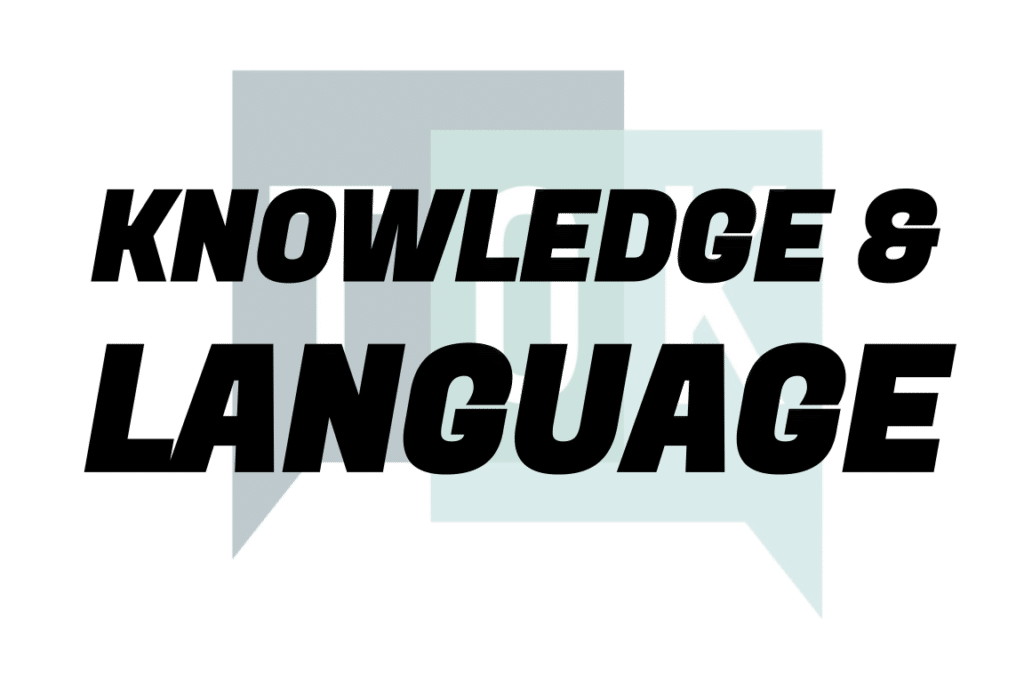
Welcome to the language section of the site. This page will help you to take ownership of language via a quick overview, and four padlets that offer you quotes, knowledge questions, real-world issues, and key thinkers relating to this optional theme.
You can use this content both to understand this component of TOK, and support discussions and arguments that you offer in your essay and exhibition.
Knowledge & language: a quick overview
The optional theme of knowledge & language explores the relationship between language and the acquisition, interpretation, and communication of knowledge. Language is the most significant medium through which we convey our thoughts, ideas, and experiences, making it a cornerstone of our cognitive development. As we navigate this theme, we encounter several key concepts.
Culture plays a pivotal role in understanding how language shapes and reflects the values , norms, and traditions of different societies. Interpretation becomes a central concept as we delve into the ways language can be a vehicle for conveying meaning and also a source of potential miscommunication. The notion of perspective highlights how individual and cultural viewpoints influence language and, consequently, our understanding of the world.
Two influential thinkers in the realm of language and knowledge are Noam Chomsky and Chimamanda Ngozi Adichie. Noam Chomsky, a renowned linguist and cognitive scientist, revolutionized our understanding of
language acquisition with his theory of Universal Grammar, proposing that all human languages share a common underlying structure. Chimamanda Ngozi Adichie, a Nigerian author, addresses the power of storytelling and language in shaping our perceptions and stereotypes, particularly in her famous TED Talk, “The Danger of a Single Story.”
Contemporary issues related to language and knowledge revolve around the impact of digital communication on language evolution and the potential loss of linguistic diversity. Additionally, discussions on linguistic discrimination and the marginalization of certain dialects and languages emphasize the social power dynamics intertwined with language use.
Engaging with the theme of knowledge & language invites students to explore the complexities of linguistic communication, embrace diverse perspectives, and critically examine the power and limitations of language in shaping our understanding of the world. It underscores the importance of linguistic diversity, cultural sensitivity, and ethical responsibility in the global exchange of ideas.
1 QUOTES Who said “The limits of my language are the limits of my world”?
Explore these quotes on language by a wide range of different thinkers. Which quotes are the most and least insightful? How they challenge our assumptions about language? What do they reveal about links between language and other aspects of the TOK course?
2 KNOWLEDGE QUESTIONS What is the relationship between words and meaning?
Identifying and exploring knowledge questions (KQs) is at the heart of TOK, prompting us to reflect on our knowledge, evaluate whether it’s be based on a flawed or incomplete assumptions, and provide us with a focus point to improve our understanding of the world.
3 REAL-WORLD ISSUES How is language a “constantly shifting terrain”?
These examples will help you to understand how TOK ideas manifest in the real-world, take ownership of language, link TOK to the latest global issues, and become an authentic critical thinker . They will also help you to justify and explore the discussions you offer in your essay and exhibition.
4 KEY THINKERS Is Kory Stamper a descriptivist, or a prescriptivist?
The thinkers in this padlet will help you to consolidate your understanding of language, and challenge your assumptions about the world. You can also draw on their ideas to support your essay and exhibition discussions, and add depth and authority to the claims you make about knowledge.
LANGUAGE: DEEPER DIVES Follow these links to access a range of notes, essays, and observations.
- 1 Key language ideas
- 2 How did language evolve?

Subscribe to the free TOK newsletter!
Subscribe to our free newsletter, and collect fantastic examples to help you understand the key TOK ideas, support your essay and exhibition, and make you an authentic critical thinker .
You’ll encounter some of the most important thinkers from the past and the present, go beyond the headlines of contemporary events and issues around the globe, and see how TOK concepts manifest in the real-world. Subscribe HERE !

IMAGES
VIDEO
COMMENTS
In TOK and philosophy, knowledge is a theoretical or practical comprehension of a subject. Plato defined knowledge as justified genuine belief. According to his theory, knowledge is objective and founded on true assertions about real objects. Philosophers concur on the existence of at least four distinct categories of knowledge:
Adam Steele. If there is one subject guaranteed to introduce you to new vocabulary, it's Theory of Knowledge (TOK) for the International Baccalaureate (IB) Diploma Programme (DP). While maths and the sciences have a lot of subject specific vocabulary, in the TOK course you will find words that are common in other subjects, such as economics ...
Theory of Knowledge Vocabulary List: Know what these terms mean as they relate to the particular areas of ToK and be able to use them in your essay and presentation—You will get a better score. P.S. All of these can be found in your Lagemann text Problem of Knowledge 1. Argument adignorantiam 2. Certainty coherence 3. Common sense 4.
Explore essential TOK Vocabulary and Key Terms to enhance your understanding of the Theory of Knowledge course. Master critical thinking and knowledge analysis.
So, I compiled a list of all the absolutely necessary TOK terminology that you should know to ace your TOK Presentation and TOK Essay so you don't need to sift through hundreds of terms and get overwhelmed by complicated definitions. PS. To find specific terms and sift through stuff you already know, press Control+F (Windows) or Command+F (Mac).
A TOK Knowledge Question is a question that is focused on knowledge, has more than one possible answer, and is general (International Baccalaureate Organization 20, 21). In a sense a Knowledge Question is a TOK-style research question. The TOK EA essay and IA presentation are simply in-depth investigations of Knowledge Questions.
In total, there are 8 different WOKs that the IBO includes in the TOK syllabus yet in reality you just need to concern yourself with the first 4. Below is a list of the 8 ways of knowing which will be outlined in this blog post. Language. Sense Perception. Emotion.
Your grade for TOK (A-E) combines with the one you receive for the extended essay (EE) to give a mark out of 3. So, an 'A' and a 'B' give you 3 points; a 'B' and a 'C' give you 1 point, etc. The FAQs section has a table to illustrate the points matrix.
TOK glossary. This TOK glossary will give you a handy outline of all of the key aspects of the TOK course, such as the different areas of knowledge, the core and optional themes, the 12 key concepts of TOK, and other terms and ideas that play a central role in the course. We've also provided you with plenty of links so you can explore them in ...
Once you've grasped the essay rubric, and chosen your title, you can start planning and structuring your TOK essay. You base this around the 3 interactions with your teacher, which are one-on-one meetings discussing your progress, and receiving feedback. As well as the interactions, you can also ask your teacher specific questions about your ...
ToK Vocabulary List Explained. The following is a brief explanation of the most important TOK terms: 1. Truth. Truth is complicated because no one can agree on what truth is. However, there are theories that enable people to have a sense of how complex truth can be.
A well-structured TOK essay should be composed of four parts: an introduction, the body, a conclusion and a bibliography. In the introduction, you should define TOK and explain how it forms part of the IB curriculum. The body should include arguments and justifications with evidence from multiple AOKs.
WOKs include Language, Sense Perception, Emotion, Reason, Imagination, Faith, Intuition, and Memory. Understanding these helps students evaluate how knowledge is generated and shared. Mastering this TOK vocabulary is about integrating these concepts into your analytical toolkit. Understanding and using these terms effectively opens up a richer ...
Paragraph 1. - Say one or two interesting things about the prescribed title question. This shows us, right away that you know what the question is asking. - Define one or two of the key terms in the title. Get definitions for all of the main words in your title. You don't need to include all of them in your essay, but it's useful to see how ...
Steps to Writing the TOK Essay. 1. Analyze the prescribed title. The first step is to fully understand the theory of knowledge questions being asked. The topic will include terms that will guide you in comparing and contrasting accordingly. 2. Choose the title. Choose a title that allows you to explore your interests.
Discuss with reference to the human sciences and the natural sciences. High scoring IB Theory of Knowledge Essay examples. See what past students did and make your TOK Essay perfect by learning from examiner commented examples!
Theory of knowledge (TOK) is assessed through an exhibition and a 1,600 word essay. It asks students to reflect on the nature of knowledge, and on how we know what we claim to know. TOK is part of the International Baccalaureate® (IB) Diploma Programme (DP) core, and is mandatory for all students. Learn more about theory of knowledge.
12 key TOK concepts. The key concepts are 12 ideas of particular significance that provide us with an effective way of scaffolding thoughts about the course and its relationship with the real world, and help us integrate TOK with the rest of the DP. Faculty member can explore the key concepts via a set of padlets, which also indicates how each ...
Memory — a storehouse of past experiences and learned information that contributes to our knowledge base. Faith — a belief in something intangible or unprovable, often rooted in spiritual or cultural systems. Intuition — kind of "gut feeling" or immediate understanding without the need for conscious thought.
Discover the official May 2025 TOK Essay Titles for IB Diploma students. See which title speaks to your interests and boost your IB exam preparation. Perfect for IB students aiming for top scores in their May 2025 TOK assessment. Thousands of practice questions, study notes, and flashcards, all in one place. Supercharged with Jojo AI.
The assessment of the TOK essay is done on the basis of two aspects: (1) understanding knowledge questions and (2) quality of analysis of knowledge questions. Below you can see a question list. These questions may help TOK students to write TOK essays. The questions are modified from TOK essay assessment criteria.
Theory of Knowledge Vocabulary List: Know what these terms mean as they relate to the particular areas of ToK and be able to use them in your essay and ... [ Final] TOK Essay - 2023 prompt: Is replicability necessary in the production of knowledge? Draft; Writing Thesis Statements practice;
Subscribe to the free TOK newsletter! Subscribe to our free newsletter, and collect fantastic examples to help you understand the key TOK ideas, support your essay and exhibition, and make you an authentic critical thinker.. You'll encounter some of the most important thinkers from the past and the present, go beyond the headlines of contemporary events and issues around the globe, and see ...